Email open rates represent the ultimate effectiveness of the emails you’re sending to your audience and your leads. And the better your emails are in composition and structure, the more you’re going to grow your business in a sustainable way. We’ve put together (probably) the largest list of hands-on tips that will help you nail email marketing and notably boost your email open rates.
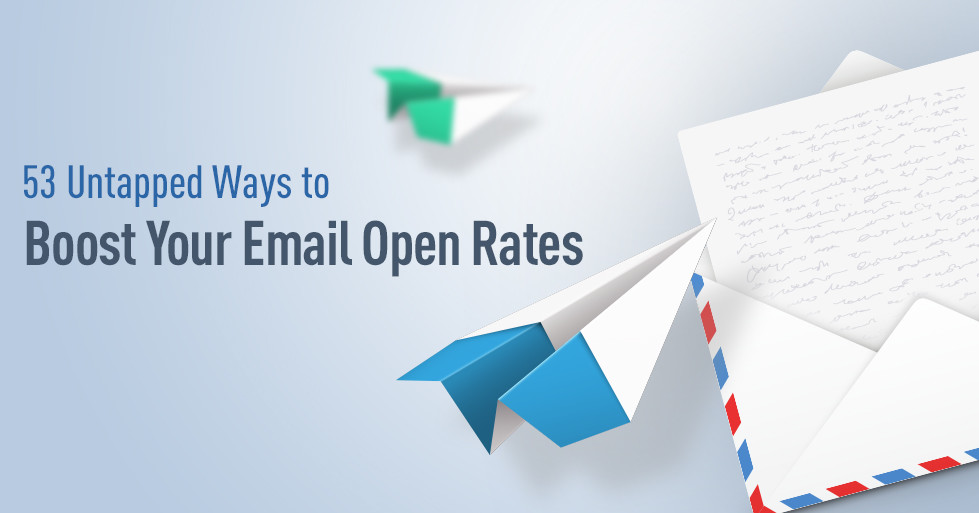
With no further introduction, we present you a great list of 53 great methods on how to considerably boost your open rate.
I. BECOME A SUBJECT LINES MASTER
- Choose a Subject Line That Triggers Curiosity
- Address the Prospects by First Names
- Use Open Loops that Sparks the Curiosity of the Reader
- Use Humor to Create a Personal Relationship with Your Prospects
- Make Use of Negative Subject Lines to Trigger Curiosity
- Use the Power of Quizzes. Announce Them in the Subject Line
- Add a Video. Announce It in the Subject Line to Raise Interest
- Be Playful. Use Emojis in the Subject Line When It’s Appropriate
- Have at Least 5 Headlines Written Before Actually Sending One
- Leverage Relevant News to Build Urgency from the Subject Line
- Use Email Series to Increase Curiosity and Loyalty
- A/B Test Alternatives of Different Subject Lines
II.KEEP YOUR READERS ENGAGED
- Create a Second Lead to Keep Your Audience Hooked
- Use Information Gap to Create a Craving for More Content
- Use Educational Emails to Re-engage Prospects That Slipped Away
- Focus Your Copy on the Customer’s Interests, Not on Your Product
- Ask Why When Someone Unsubscribes
- Make the Same Message Revolve Around More than One CTA Button
- Brand Your “From” Name. Set a Personal Name and Stick to It
- Review Emails Internally Before Sending Them to the Public
- Proof Read for Grammar, Not Just for Marketing Relevance!
- Finish the Email With a Question to Increase Engagement
III. BE CAREFUL AT THE TIMING & FREQUENCY OF YOUR EMAILS
- Use the Same Delivery Time for All Your Emails (Especially for Newsletters)
- Avoid List Fatigue. Avoid Sending Too Many Emails
- Get the Length of the Message Right – Add a TL;DR in the Subject Line When Necessary
- Try Automated Behavioral Triggered Emails to Exploit User Behavior
- Ask Your Contacts to Decide How Often They Want to See Mails from You
- Resend Unopened Emails
- Create Anticipation Towards the Following Email from a Series
- Let the Contact Know Your Email is Fresh
IV. AVOID SPAM FILTERS
- Beware of the Word ‘Free’. It Can Trigger Spam Filters
- Use Lower Case Letters in the Subject Line
- Only Use the Emails of Your Contacts for What They Expect from You
- Make the List Double Opt-In
- Ask Contacts to Add You to the Address Book
- Avoid Attachments, Whenever Possible
- Optimize Your HTML to Increase Deliverability
- Use Well Optimized Videos to Get the Message in Your Prospect’s Inbox
- Optimize Images to Be Responsive on Mobile Devices
- Use Email Authentication to Prevent Fake Accounts from Sending Emails in Your Name
- Connect Your Current Location to the Email Account to Spot Unusual Activity Easier
V. BE AWARE OF THE LIST SEGMENTATION IMPORTANCE
- Micro-Segment Your Mailing List
- Address Prospects from Your Niche
- Constantly Upgrade & Update Your Contact List
- Address the Message Having Just One Persona in Mind
- Avoid Sending Unsolicited Emails
VI. KEEP A STRONG CONNECTION WITH YOUR AUDIENCE
- Add Social Media Links to Be Closer to Your Audience
- Send a Warm, Personal Welcome Email When Someone Subscribes
- Send Relevant Product Update Emails
- Use Your Credibility Smartly. Avoid Promotional Content
- Include an Unsubscribe Button
- Personalize Your Signature with a Short Description
- Encourage Sharing the Content of Your Email with Close Friends
I.BECOME A SUBJECT LINES MASTER
1. Choose a Subject Line That Triggers Curiosity
From our experience, one of the first things you’d like to avoid in the pursuit of a perfect subject line that stands out is being too smart about it. People don’t like it when you’re cocky and neither do they have time to understand the deep existential meanings behind your subject line. Of course, as everybody’s using email marketing and not everybody is so good at it, if you’re not unique you may get filtered out as spam before even hitting the inbox. We’re not here to advocate the lesser of two evils, we’re here to suggest moderation.
Ramona Sukhraj gave a great example of an email subject line form Canva. It has a bold attitude. It is stressing on an issue that you may have encountered, admitting that you may have problems from time to time, and it positions itself as a solution to them, all in one place. Pretty amazing style, impossible not to leave you curious on the matter. Even if you don’t usually read their newsletter and you’d like to skip this one, you’ll probably close your email app and re-open it just to satisfy that ardent curiosity.
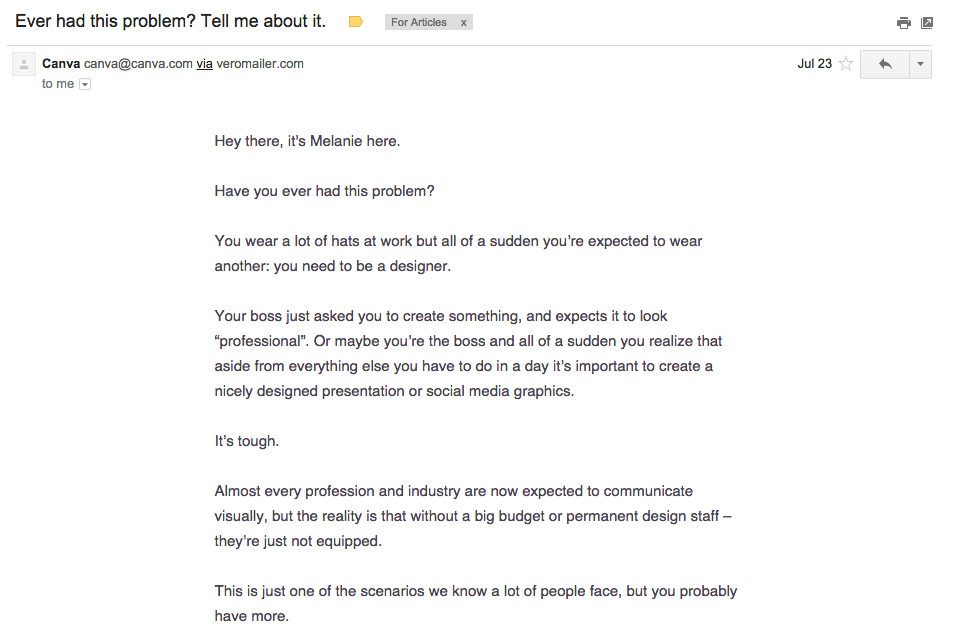
THAT is what you’re aiming for , a subject line to say something meaningful and personal, or at least to arouse curiosity, without being too complex or too shady.
Easier said than done. Especially because, despite being one of the most advised things about email marketing, people are still doing it wrong. However, an easier way to keep relevance in your plan is to include numbers in the subject. There’s something about them that makes people think you’re precise and worthy of their time. Of course, this is just one example of the many ways of creating an effective subject line.
2. Address the Prospects by First Names
Once you’ve got the prospect’s email, there comes the imminence of the email soon to be sent. However, there isn’t any guarantee that there will exist not only a positive but any reaction at all.
There’s more than just one popular way of doing it. For instance, you can use ‘Fwd:’ or ‘Re:’, but only when it is necessary, manually added just to send the message of a personal approach from a friendly face. As it’s always good to have some news from a friend and this marketing strategy can work.
And some emails are just so awesome, that Tina Turner would sing about them.
As Carly Stec documented in her article, catching the user’s attention is a constant journey through the email, and addressing the sender name is one of the first steps.
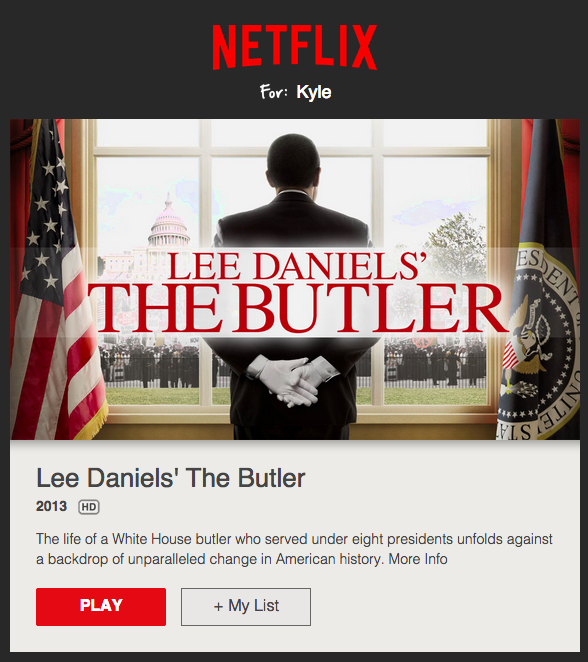
There’s still a good chance that the recipients’ name you’ve got in the database aren’t actually their names, but there’s a good chance you won’t fail. It is, after all, a little more personal to have a first-name-base approach.
3. Use Open Loops that Sparks the Curiosity of the Reader
Using an open loop to attract your prospects into opening your emails daily is a functioning way of increasing your open rate. However, you should keep in mind that good content marketers’ task is not completed when the prospect clicked on the email subject line.
There’s no use in building anticipation in the subject just to disappoint in the content of the email. So delivering what you promised to when the prospect gave you the email address is a must in order to maintain your position. The example below brought up by Jeremy Reeves, is quite a pedagogical approach of this tip.
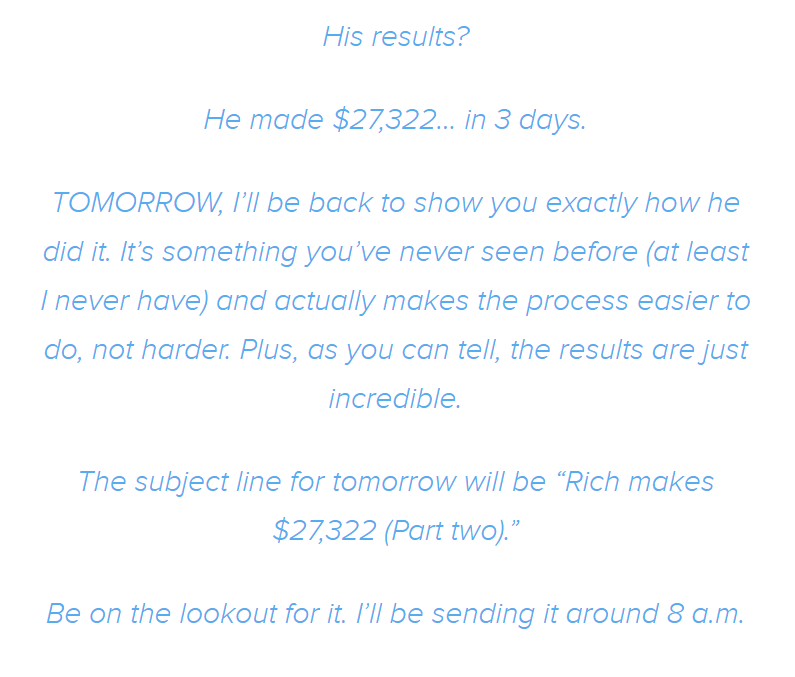
This is not just a copywriting trick. It’s a way of delivering information. It’s been proven that not only do we get curious, but we also get anxious when there is a gap between the information we have access to and the one we want to know. That explains the unhealthy amount of sitcoms in our lives – the urge to know what happens next.
Tipception: You can get as creative as you want with this technique, and the important tip behind this tip is to organize your information to leave people in front of cliffhangers, while actually delivering consistent information with every email. However tempted you may be to create a long ‘post’ and send it as a series of emails with a plot twist at the end, that’s not the way. The whole purpose of it is to create tension and anticipation with every email, but without damaging or affecting the content that you deliver. If Game of Thrones can do it, we’re sure that you can too!
4. Use Humor to Create a Personal Relationship with Your Prospects
Ideally, your contacts already know who you are and the communication process flows without any issues. Practically, that’s rarely the case and it only happens when you’ve got no more than 5 clients, which (well, of course, it depends on the industry) isn’t such a happy prospect for most.
Getting to a point where you’ve created personas to get more efficiently to your audience is something to be positive about. It means your business is constantly growing.
Unfortunately, something you might sound impersonal and boring. And there’s a fix to that. Transfer the humor from your day-to-day life to your prospect-to-prospect experiences. There are others that follow this practice and do it well, but we’d advise you to go on this path only if you’re a genuinely funny person.

For instance, my favorite example is throwing a subject line that says ‘So I’ll pick you up at 7?’. That yells personality, It’s so rich and impossible to ignore. But it also takes some strategy to not follow this line with an awkward email, but to keep a natural tone. Even DJ Waldow decided to talk about this strategy.
5. Make Use of Negative Subject Lines to Trigger Curiosity
The old carrots versus stick hypothesis. Truth be told, we do tend to react better to fear. From this point of view, loss aversion is a much more powerful stimulus than being offered a gain. This can be very well used in crafting a puissant subject line. Behind this fact, there’s a mechanism that speaks of basic human nature principles.
Being alerted about a potential danger/threat is more powerful than being told you can follow an opportunity. The reason is that, while we cannot always visualize how far an opportunity could take us, we can easily imagine loss; it’s more palpable, more real and we’re more willing to fight loss than finding a lucky chance.
Lindsay Kolowich wrote a post about various subject lines that work. Among them, there’s clearly one using loss aversion, with a great open rate, which means it worked. Of course, it would have been more accurate if we had access to the average email open rates of the blogger, but an absolute percentage of 17.13 is not bad.
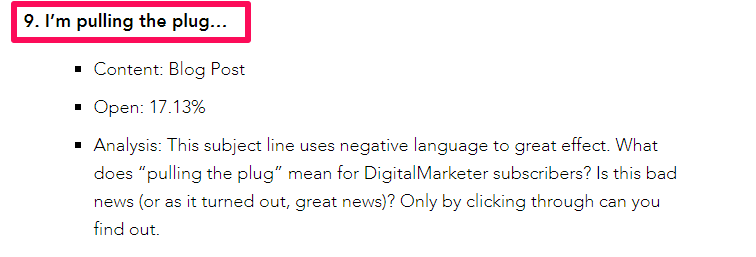
Defense mechanisms are built around the things that we care most about particularly because they’re meaningful and we have worked a lot to get here, which is why they’re infinitely more relatable.
6. Use the Power of Quizzes. Announce Them in the Subject Line
Whenever we hear about a quiz we tend to zone out from everything else and just take it. Adding quizzes and educating your audience to expect them makes the people engage more with your content and, therefore, remember you better. Maybe tell them that you’ve sent them a quiz, from the subject line.
This can happen even if you’re a huge actor on the market or a newly entered one, as it helps you stick to people’s minds. Creativity has always been a powerful means when it comes to a brand’s memorability. Not to mention it increases click through rate. Take the example below, from Grammarly.
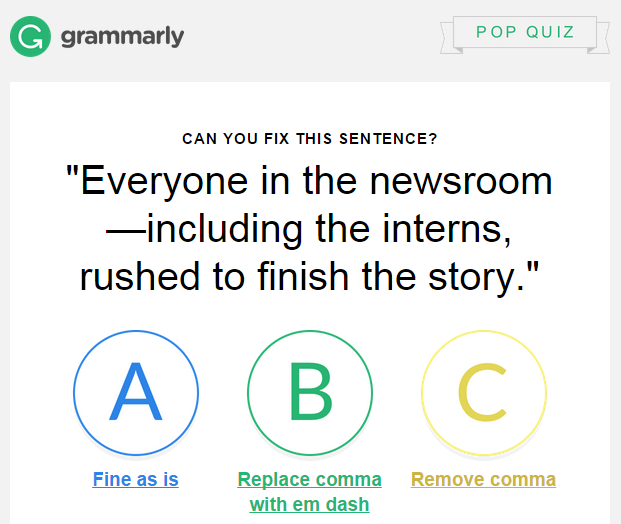
7. Add a Video. Announce It in the Subject Line to Raise Interest
There are countless reasons why embedded videos in email marketing campaigns work wonders. While this is an extended practice and everyone seems to have been doing it for years, it’s crucial to keep in mind the reasons why you’re doing it, both concerning your needs and your readers’, and to stick to your digital marketing plan.
Also, if the users aren’t used to this type of content or don’t know to expect it, you can announce it in the subject line.
From our point of view, adding a video to an email means creating a context for your readers to allocate more time to your emails than they usually would, as integrating more than one sense in message transmission is proven to be more effective. Then, of course, there’s the possibility of your brand going viral.
This great example of video embedding from Emily Konouchi brings to our attention the importance of getting the audience used to receiving videos. And it’s more of a process than a state, meaning that you’ve got to teach your readers what to expect from you and in that you’ve got the biggest flexibility. So did Mario Batali in his culinary newsletter.
From your reader’s point of view, a video is a summarized version of an article, one that’s more pleasant to follow, and it’s also more impactful, personal and significant. It’s also best if you include single tap to play it since many users open the emails from their phones. Additionally, autoplay is never a good thing to do, as it’s intrusive and it violates trust.
8. Be Playful. Use Emojis in the Subject Line When It’s Appropriate
It’s thrilling to work in an industry that’s finally mature, it has its niches, its specialists and its overly excited, ever-so-powerful fanbase. But this, like any other awesome thing in life, comes with responsibilities. One of them is taking your job seriously every second of the day. And while it may seem a little odd, this doesn’t mean that you should be formal and pretentious with your readers. On the contrary, it’s high time you spiced some of these strategies up with a little humor, a personal note, maybe a slightly inappropriate joke. Use a more personal subject line.
Short, colorful, and attention grabbing, just like the example below.
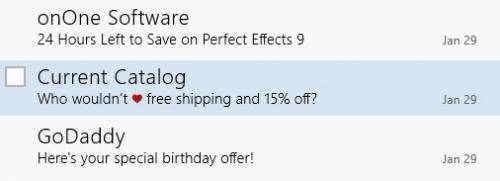
This is how a correct use of the emoji should be in the subject line of an email. It’s especially useful when you’re not overusing it and look spammy. Just like Jackie Nees mentioned on her blog, there’s a fine line and you’re risking a lot if you don’t know where to stop. However, there are bad examples as well.
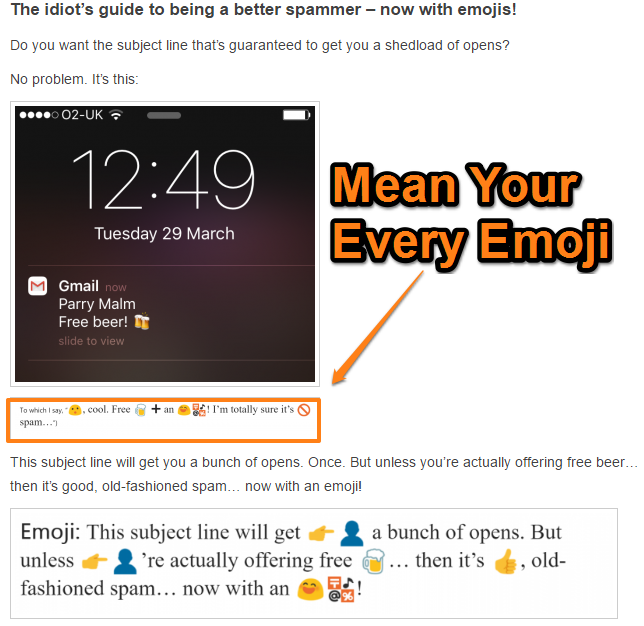
And maybe you should use emojis every once in a blue moon, when it’s appropriate and the context allows it. What two years ago would have been a big no-no is only the logical thing to do today – people like interacting on an emotional level with their connections, and networking is more than exchanging likes and retweets. It only makes sense to adapt your email subject line to these trends.
And as always, with the risk of sounding like the mother of a teenage girl, don’t do anything that you’re not comfortable with and that doesn’t align with your personality. You don’t want to pose into something you’re not, you just want to communicate personally from the first character of your subject line; and if you’re doing it through other means and you’ve never used emojis in your personal life while exchanging text messages with your wife and kids, maybe you shouldn’t do it. Otherwise, don’t hesitate!
9. Have at Least 5 Headlines Written Before Actually Sending One
You don’t need experience in journalism to figure out that there’s an almost weird similarity between a headline and the subject line of an email. They both have the role to intrigue, to raise questions and to spark curiosity. Most of the times, the subject line is what opening an email or not depends on. And as this is the very most important decision when it comes to open rates, it should be given its much-needed attention.
The business world is responsible for most of the email traffic, with over 100 billion sent/received emails per day. By the end of 2017, were 269 billion sent emails. This figure is expected to grow to over 333 billion daily emails in 2022.
You just cannot win at this game without a kickass headline. Which is why you should have where to choose from. I would recommend writing 5 headlines before pressing send. It’s massively important to reach the level of conciseness and relevance, while also making the reader curious about your content. It’s never easy to do it, no matter how much experience you’ve got, and it takes practice. Most of the times,you should follow some clear-cut rules too, if we’ve decided to treat it like a headline. Some people take it very seriously and some even do A/B testing.
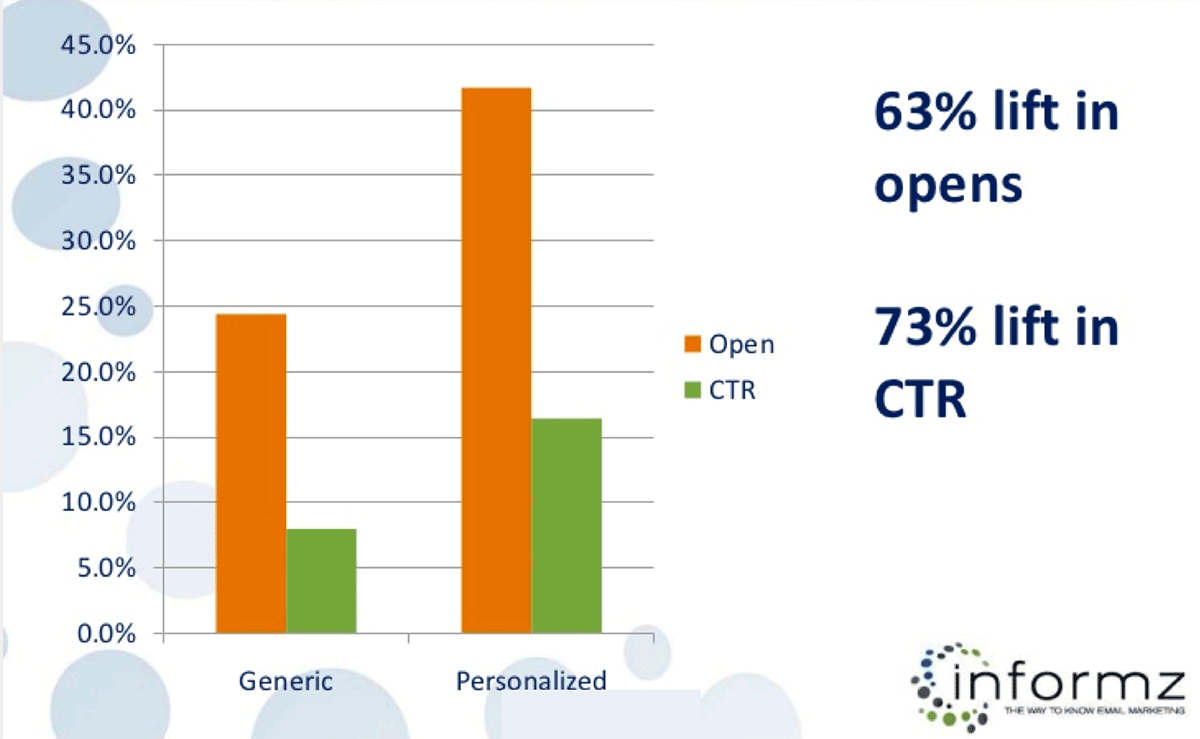
The ideal length of a subject line depends on context as much as some external factors (such as the closeness of your audience with your brand). Its tone should be intriguing more than just a cry for attention. In order to pull all of these off, you need to take time and to find the perfect angle to your story. Just like you do in journalism.
10. Leverage Relevant News to Build Urgency from the Subject Line
It seems like every other tip is about creating better subject lines when it comes to email marketing. And while that’s great advice, it cannot work miracles alone. You need to set up a lifecycle email marketing strategy. In other words, it’s essential for your prospects to know why you’re sending those emails, what category of emails they are (are they promotional? Are they newsletters the prospect subscribed for? Are they a regular 20-days follow up?). We all know how important are click rates because they measure your subscribers’ engagement with your subject lines.
It’s of tremendous importance that the prospects don’t ask themselves ‘What do these guys want now?’ whenever a new emails lands in their inbox. And because everyone’s schedule is always a little too full to cope with, maybe it’s ok if your prospect doesn’t open a follow-up email, but does read the newsletter regularly.
Proving the relevance of an email often constitutes a prioritization in the mind of the reader. And this is essentially a great mechanism of the human mind because instead of getting to ad nauseam before opening an email, they will filter the information and only open what’s important to them. And this is what business should be like, right? Delivering information so that the prospect will have easier access to something they vividly want to hear.
This is where relevant news come into the equation. If your readers know what kind of email they’re receiving and why it’s a lot easier to spark their interest with different tricks. News incorporate the present into your messages, giving them temporal relevance and a sense of urgency. All of this happens using context. Topical events are a good source for anyone out there looking for a fresh perspective on their content strategies, as long as they’re not artificial and exaggerated. Try to find the events that blend in with your products and digital marketing goals.
Such as Chris Hexton stresses in his article, relevant news can drive conversions if they’re used properly and towards an interested audience. Don’t always sell them with a topical subject line because most probably everybody does. Leave the connection for the people who open the email.
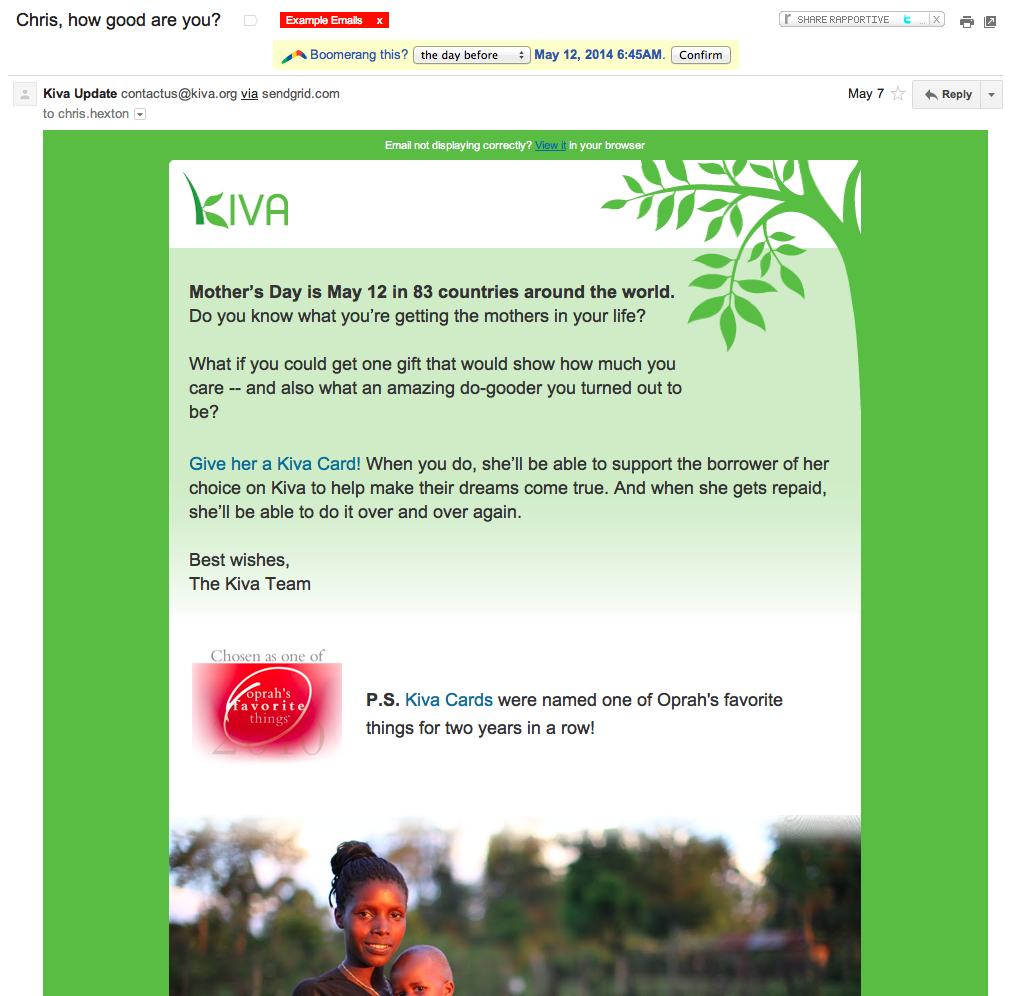
You will, then, be able to improve your conversion rate optimization and have a higher open rate for email marketing campaigns.
11. Use Email Series to Increase Curiosity and Loyalty
It’s difficult to create a loyal audience because every other source of information that delivers similar content to yours can be thought of as a good replacement. Everything seems to be more dependable than ever before. That’s why you have to use creative hooks to keep your audience engaged, and email series are one of those hooks. Aside from the content strategies that can help you shape the way your message is best formulated, the idea behind this content makes for a sustainable strategy as long as you’re thinking long term.
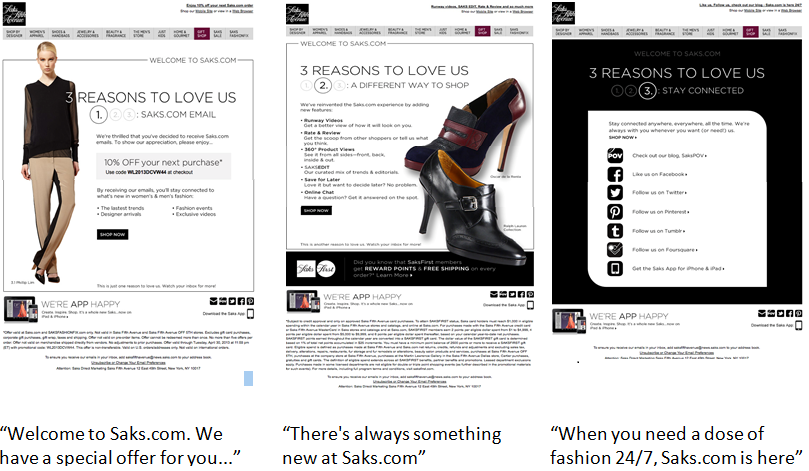
12. A/B Test Alternatives of Different Subject Lines
One of the most relevant ways of delivering something that your audience would appreciate is testing the audience regarding your subject line. Before actually sending out an email to a massive list, it’s best to have some hands-on feedback from your readers and track click rates, open rates to compare the results.
Wishpond’s blog post about A/B testing also treated subject lines, and it turns out running tests is for the better.
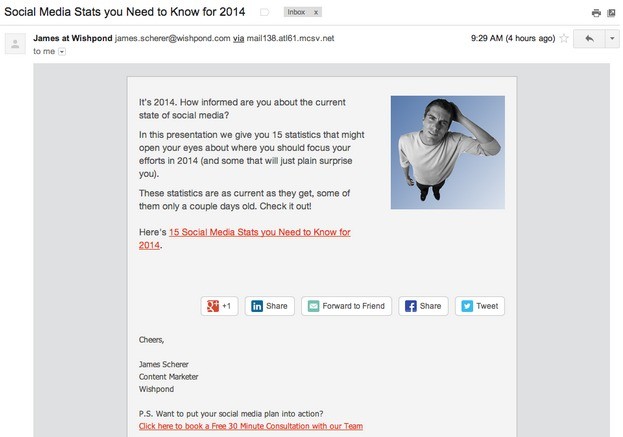
And more than just one variable serves well for better positioning.
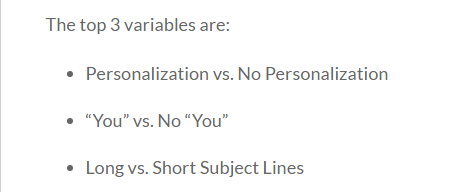
Sometimes two different copy approaches of the same content can have very distinct response rates, despite being about the same information. You wouldn’t want to cut your open rates in half because you haven’t been cautious and humble enough as to test what works better.
II. KEEP YOUR READERS ENGAGED
13. Create a Second Lead to Keep Your Audience Hooked
I’m not the first one to advocate for this strategy; it worked for many other influencers out there. A constant and active fan base that always accesses your email and constantly reads your content on the blog is something we’re all striving for. However, it doesn’t hurt to give extra motivation to people whenever you have a chance. Any course, webinar or other kinds of second lead can dramatically improve your open rates; the more hands-on the topic you’re delivering, the better your chances are to have a burst in the open rates. Use social networks to create buzz.
When you’re targeting busy people, make sure you’re solving one of their problems. Once you are useful, they’ll keep you close. Carly Stec’s article is nothing but living proof that it can work if you’re doing it right.
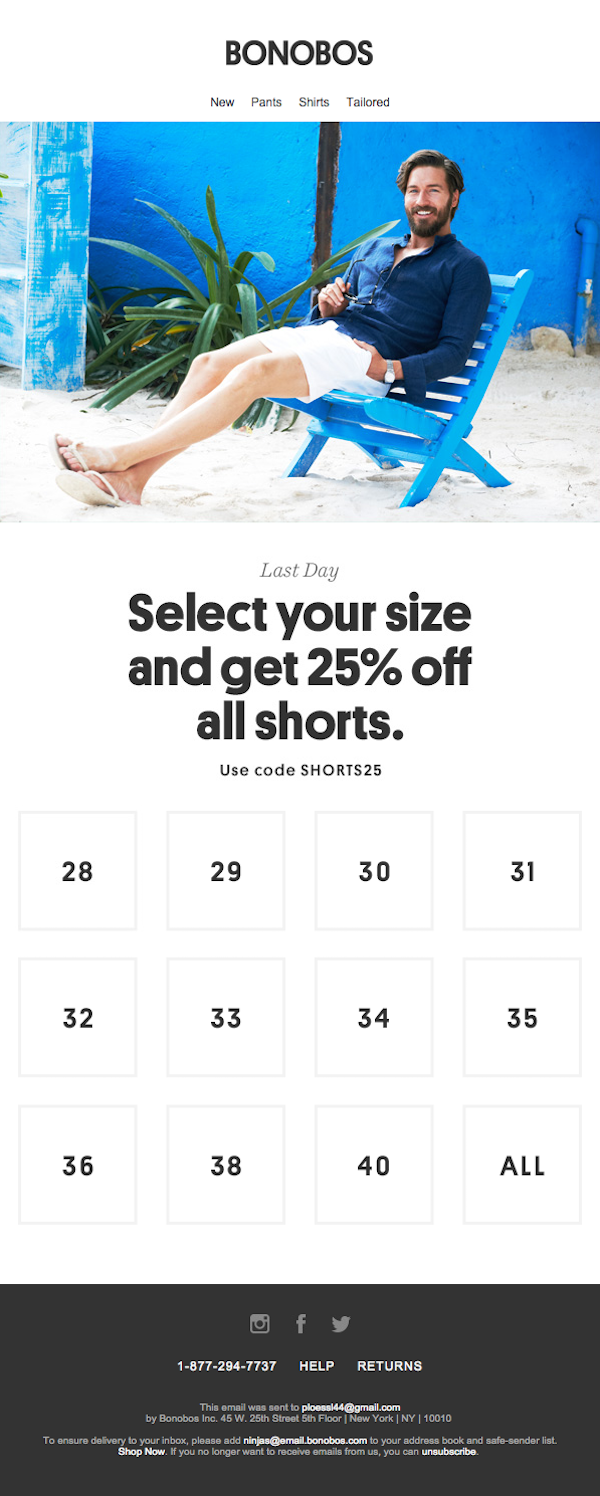
The secret is to keep people interested and not go softie with the informational quality when you notice an increase. People will only come back for as long as you fill their needs, and it’s enough to break the good pattern you’ve been working on for months once to lose a significant part of your audience.
14. Use Information Gap to Create a Craving for More Content
There has to be that piece of information, that exists in every niche, that everybody seems to be using but no one really knows how it’s done or what it’s about. So maybe it’s time to clarify it.
That’s when you come in. Under the pretense of delivering a more in-depth approach to something everybody knows, you can solve the issue of the elephant in the room. If it’s too much to cover in one email, you can easily create a series and satisfy an informational hole that has kept your prospects from growing in business intelligence. It’s not easy to serve the social greater good, and it clearly takes a lot of precious time, but it’s efficient most of the times if you take it seriously.
An example of such, you can see below:
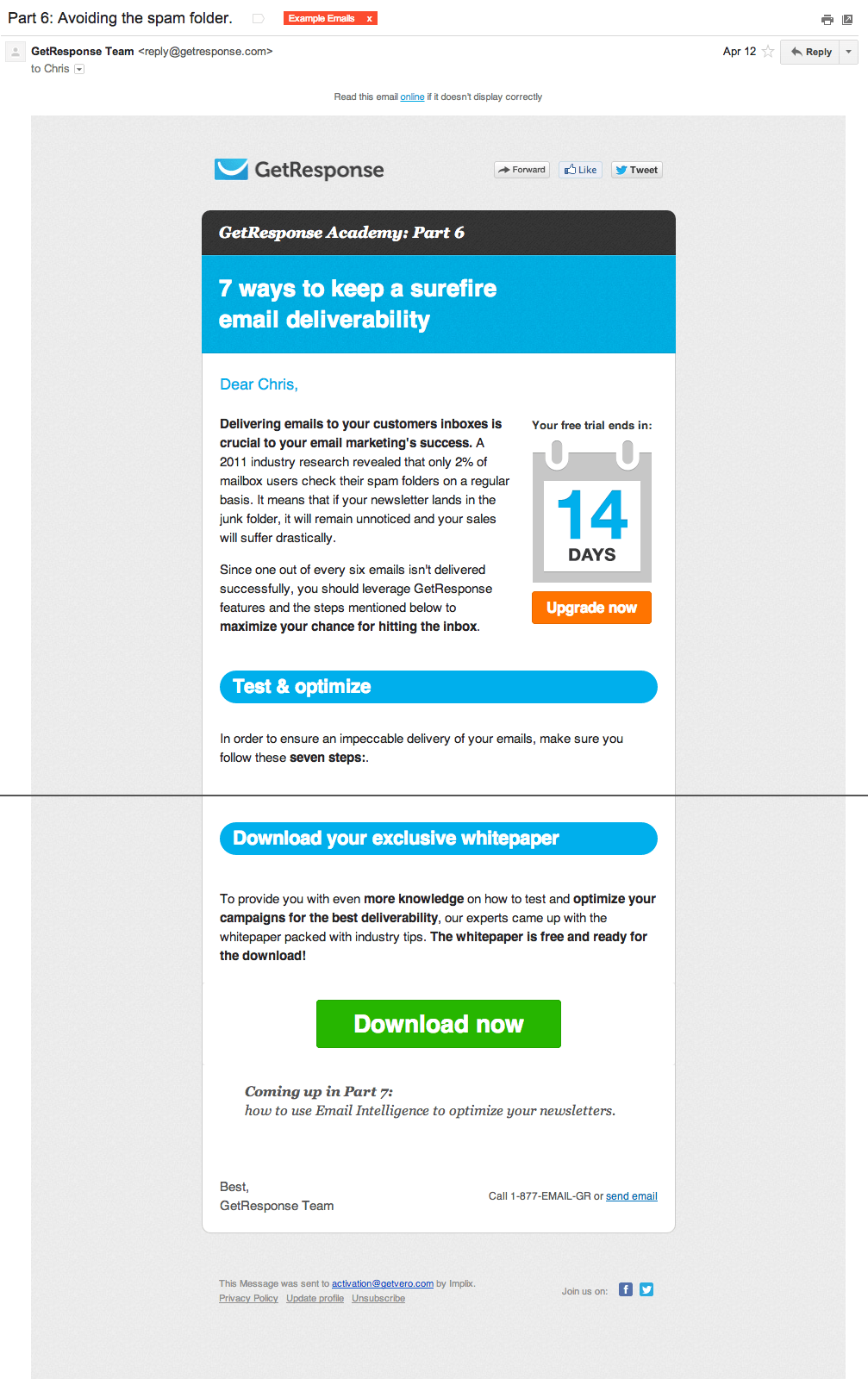
15. Use Educational Emails to Re-engage Prospects That Slipped Away
It’s not uncommon for prospects to lose interest in your content, even though they may be directly interested or even involved in the niche that you are active on. This can happen as a result to various reasons. Either because they got so used to the style of your content and it doesn’t spark their interest anymore, or because you have changed something they liked a lot, or sometimes because you have become too aggressively promotional. So make it up to them.
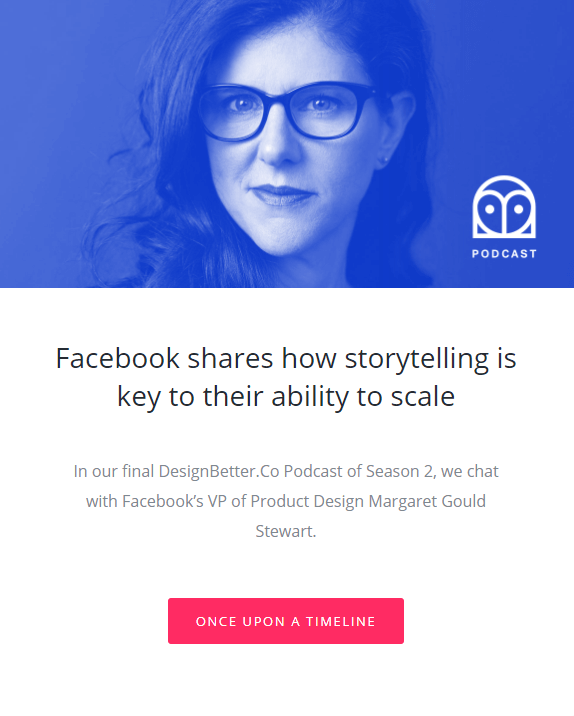
However, there is always one category of emails that will be opened, even if your regular newsletter or mailing style is a little too aggressive and that is the educational email. The chances are that most of the people who are actively passionate about staying in touch with the latest news in your niche will maintain long-term interest in educational emails that are meant to fill in background informational needs.
16. Focus Your Copy on the Customer’s Interests, Not on Your Product
While we’re in the mindset of providing the best for your customers’ interests, it’s not only through educational emails that you can satisfy the prospects’ expectations. A powerful strategy of advocating your brand is assuming a more objective voice, one that doesn’t have the brand in the close-up, but the very reason why your audience needs your products or services.
Mary Fernandez gave the next example of an honest copy that completely makes you fall in love.
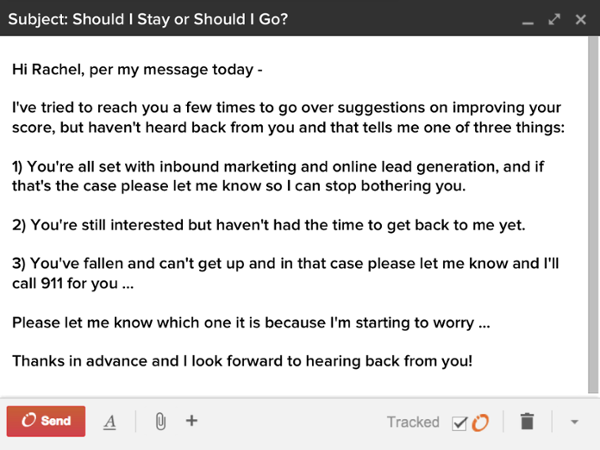
This means that if your product is a carpet cleaner, it’s not cleaning carpets that you’re selling. It’s hardly even clean carpets. What you’re selling actually is a good impression of your mother-in-law who comes to visit during some weekends, unannounced.
So stop talking about your brand for just a second and shift the focus to the brand promise, and even further to the achievements that can be completed with your brand. Because those are the true points that spark your prospect’s attention.
17. Ask Why When Someone Unsubscribes
People unsubscribe from mailing lists for the weirdest of reasons, varying from my wife just had a baby and I don’t have time for this anymore so I’m wealthy enough not to value information.
However, this is only a minority of them. Most of the unsubscribes happen for a legitimate reason that you should know about. So send them an email asking to fill in your this-is-only-taking-a-nanosecond survey.
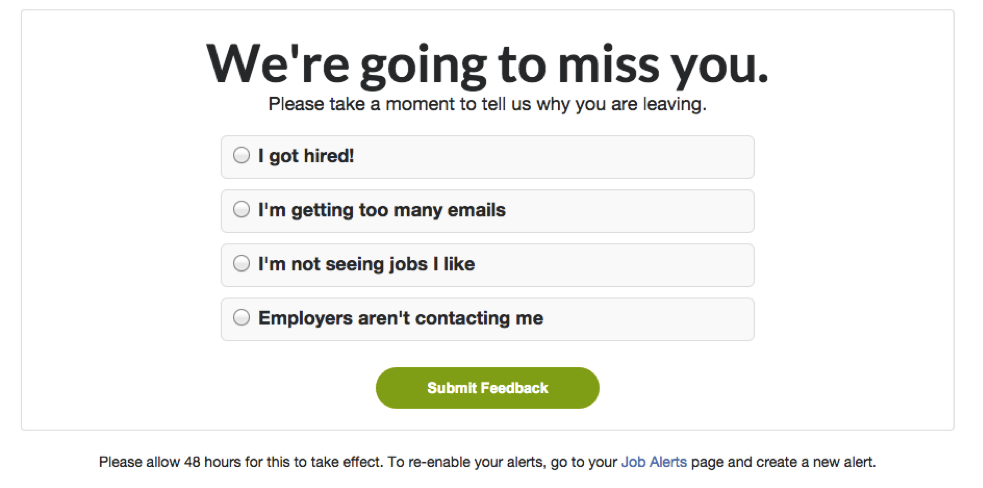
Most of the prospects who click the unsubscribe button are unhappy about something and chances are it’s something you did or didn’t do. Therefore, it falls under your responsibility to try to fix the misunderstanding. People subscribe to mailing lists for a reason– there’s something they liked about you. But it’s not going to always be a honeymoon phase, and you have to treat this relationship personally and responsibly.
18. Make the Same Message Revolve Around More Than One CTA Button
Just as it applies when it comes to website pages, having one call to action doesn’t mean you should also have only one call to action button. On the contrary, the more opportunities you give to the reader to click on your links, the better your chances to convert.
However, you do have to pay attention to the message behind those buttons or text links. This Whirlpool case study showed that there was a 42% increase in clickthrough rates. How?
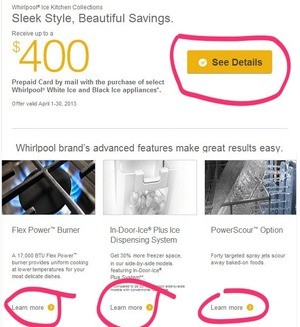
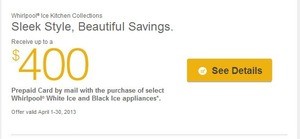
That’s because there were too many messages, when – in fact- the email ideally has to build your readers’ trust and allow them to decide when they’re convinced. The example shows that no matter how good an idea is, if it’s not well executed it can do more damage than good. So make sure that the CTA buttons and links intensify the same message.
We’re all interested in a good story, as readers. We like to see the person from the other end trying to build a relationship with us. If you’re just giving me a button/link to click on the minute I open the email, you’re only going to take me by surprise. In reality, it’s best to let the readers decide when they feel ready and convinced to click on your CTA. This abundance doesn’t mean, however, that we should hyperlink the entire email. But 2 CTA opportunities, for instance, could send the message that you respect the reader and are willing to give them time to trust you, very much like it happens in real life.
19. Brand Your “From” Name. Set a Personal Name and Stick to It
A huge part of personal branding is memorability. And the reason why it’s so difficult to pull it off is that there are so many associations already going on in our heads as well as our users. But the other half of personal branding is being personal. My conviction is that, if you’re consistently personal in both the way you write the emails and the subject line title, there’s a good chance you’ll win on the long run.
Justine Jordan explains the importance of the “from name” personalization and the drastic impact it can have on the audience’s judgment.
| In almost all cases, the from name and address is the first thing that subscribers see. Is your from name recognizable and trustworthy to external audiences? | |
| JUSTINE JORDAN | |
| VP Marketing at Litmus | |
An example behind a poor naming decision comes from Banana Republic, when the brand decided to send emails with an acronym of its name, BR. The problem is that, if your personal name or your acronym are not popular enough, you should stick to the brand name as to be easily recognized. However, a personalized “from name” does spin the wheel of brand recognition.
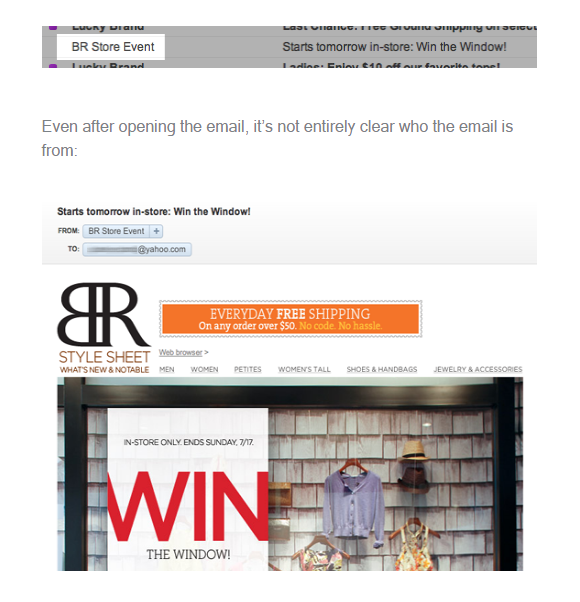
There’s nothing wrong with a common name, either, as long as your email doesn’t come from a shady business address, but from your personal name. It’s vital for the reader to see that the email comes from you, and the most accurate sign of this is your name populating the ‘from’ category instead of your work email address. This way, you’re on the point of establishing a personal liaison with your reader. And maybe, if you’re new in business or they’re new on your list, this won’t happen for the first emails, but it’s most likely going to be a long time success.
20. Review Emails Internally Before Sending Them to the Public
This one’s not going to shock you if you ever sent an email to a thousand prospects and then realized what an awful typo you had; the type of thing that would never happen to you, especially since you’re so much of a grammar Nazi and always in touch with your use of language. And yet it did. It happened. All you can hope is that your public will not start associating you with that horrible person who doesn’t spell ‘your’ correctly.
To avoid these sorts of issues, use internal reviews as often as possible. And by that, I don’t mean you re-reading your email (out loud) after you’ve written it. It can help, but your full of biases mind will very likely skip one of two mistakes that either sound wrong or are spelled badly. This is what your colleagues are for! Send the email to them, ask them kindly to carefully read your email as if it were a will from an uncle who decided to leave them a castle in Scotland. Accept nothing less. The way every sentence’s significance can bend and twist can be either your success or your failure. With that in mind, always review emails internally!
Of course, sometimes you can get lucky enough as to repair the mistakes in a very cute way, just like in the example below. But that rarely happens.
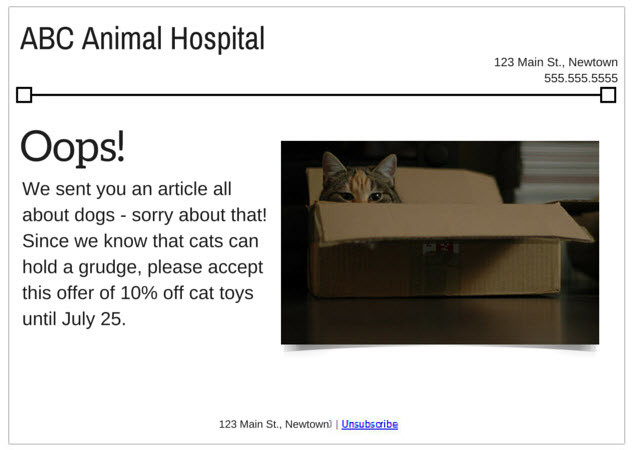
21. Proofread for Grammar, Not Just for Marketing Relevance!
As credibility is what grants either your success or your failure, it’s essential to present the materials to your prospects flawlessly. It doesn’t pay off to spend one entire week documenting a case study just to present it poorly, with spelling errors. Otherwise you, will have to make up to your readers again.
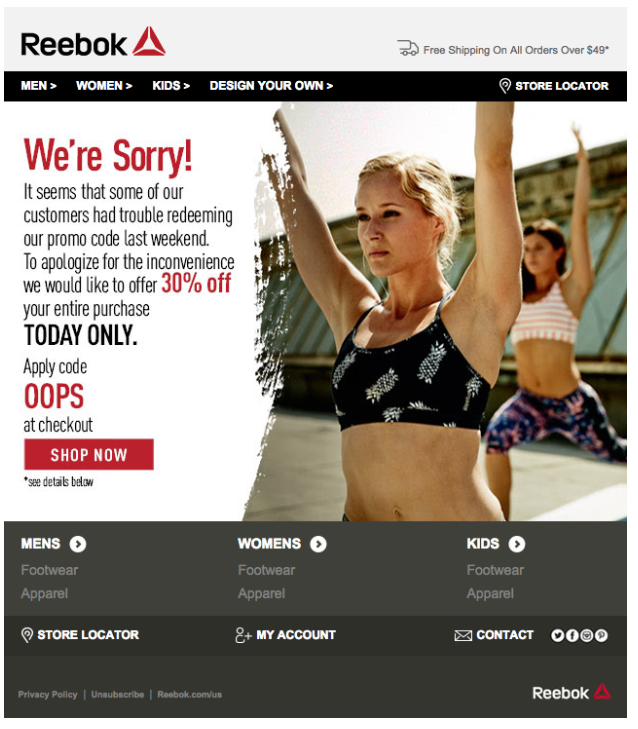
And you may not get off as cheap as Reebok.
Just like editing, spell check shouldn’t be made by you solely. At least one set of fresh eyes is required to read the material before sending it to the public – after all, there’s little we appreciate more than a well written, well documented and highly relevant piece.
22. Finish the Email in a Question to Increase Engagement
It’s never easy to paint the portrait of a happy audience. However, the easiest way to someone’s heart in email marketing (and life in general) is showing how much you care, and the fundamental cores of this relationship are not about you, but about them. This technique helps you a great deal with the long-term open rates.
Asking a question once in a while is an invitation for your readers to interact with you and your brand, therefore improving their overall experience with your products or services. So did Kissmetrics in their client’s emails, thinking that their audience would engage better. Which happened.
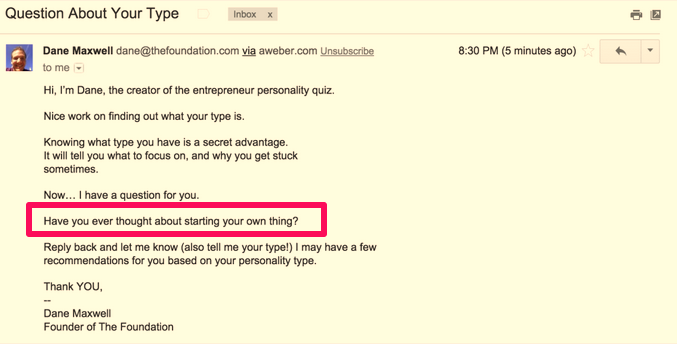
The relevance of personal communication strategies is not to be underestimated, and encouraging interaction is your way of showing how much you are willing to take your prospects’ opinions into consideration.
III. BE CAREFUL AT THE TIMING & FREQUENCY OF YOUR EMAILS
23. Use the Same Delivery Time for All Your Emails (Especially for Newsletters)
Consistency is the founding of all habits. The more you’re going to keep the schedule fixed, the more people are going to make a habit out of reading your newsletters. It usually takes us 21 days to form a new habit, after which things will be naturally integrated into our program. Aside from being easier for your business to organize the issues of the newsletter internally as to be constant, this form of time consistency represents a key issue in attributing credibility; being able to stick to a schedule involves planning and efficient resources distribution.
Dave Chaffey wanted to find out the best times to send emails depending on the industry and wrote an article about it. Below you can see the results:
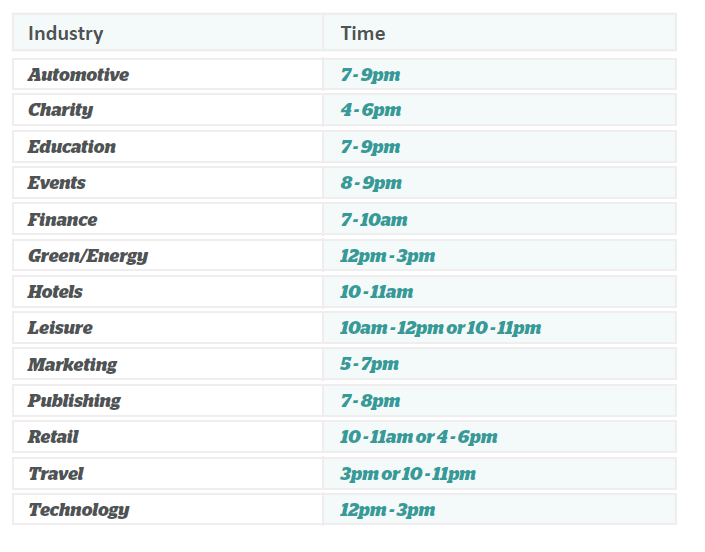
Imagine how easy would be to grow a fanbase this way, by using email send time optimization.
24. Avoid List Fatigue. Avoid Sending Too Many Emails
It isn’t an easy challenge, but being the one to bring a new perspective or to test out a new theory can interfere dramatically with the idea of email fatigue. And get to the point where you can build a Hitchcock’s suspense in an email series and people cannot get enough of what you’re writing.
If it’s not the case, then probably a moderate attitude is the best solution to your problems. Maybe some of the content you present is outdated, or simply not outstanding compared to what your audience has already read. And maybe you’re sending out mails way too often. Even if some of these aren’t necessarily content, but brand focused, they do count and your prospects may get enough of your name in their inbox. Yes, it’s possible and it’s better avoided!
Or do something out of the ordinary. Take another approach, like Jet Blue did. They created an email to humorously reengage customers offering information in a 3 points format.
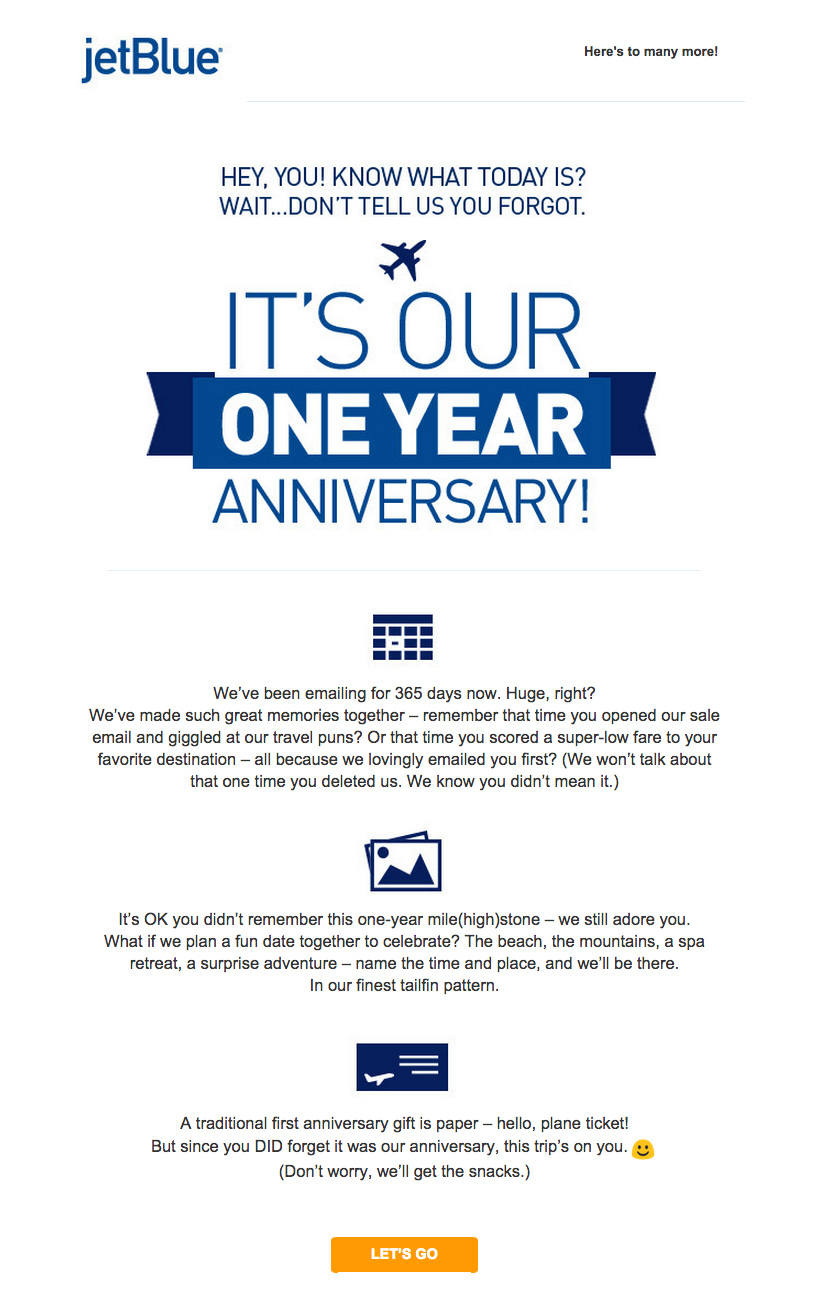
Stick to a calendar and only send out branded content if it’s necessary: new release coming up, huge news in the niche etc.
25. Get the Length of the Message Right – Add a TL;DR in the Subject Line When Necessary
Depending on the message of your email, the content should be delivered in its best form. Usually, this is the information-redundancy ratio. You wouldn’t want to make people close your emails, because this would diminish drastically your open rates in the future, and you wouldn’t want to miss any of the important information for the big picture either.
If we take the example below, what is your first impression aobut it?
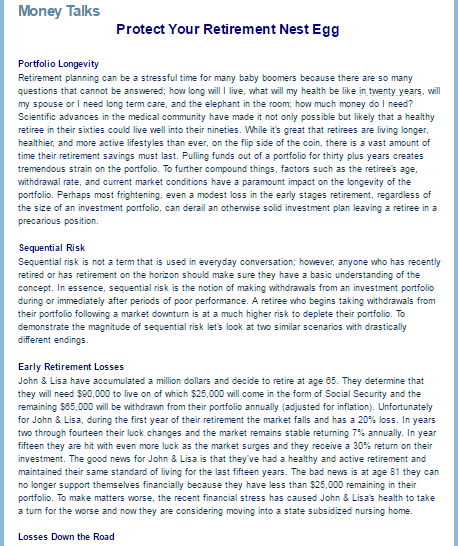
Source: twentyoverten.com
You don’t like i, right? There’s a lot of content and it looks overwhelming. A huge amount of content will most likely go unnoticed.
A visually appealing copy helps the users through the content and assures them diversity.

The solution to this problem is being honest and try to talk to your prospects as you would with your friends: don’t skip the juicy stuff but don’t bore them either.
26. Resend Unopened Emails
It’s so frustrating to work an entire week on a piece that doesn’t get opened by your subscribers. There are plenty of situations when you can resend unopened emails to your prospects. The most notable perhaps is the small open rate. Whenever you get a smaller open rate than expected, either because it is small compared to your general open rate, or because it’s better than most of your open rates, but so is your email, there’s no point to leaving it at that.
Of course, the opposite situation works: your article/newsletter is great, and people should read it. In fact, most of your prospects did, you never expected such a huge open rate, but here it is. And the results are astonishing: a lot of marketing engagement and response with a positive sentiment in all the comments and on social media networks, as well. You wouldn’t like to waste that either. In fact, in the second email, you can mention that.
Specialists have come to solutions to the issue of small open rates, and segmentation based on non-opens is the first step in solving this issue.
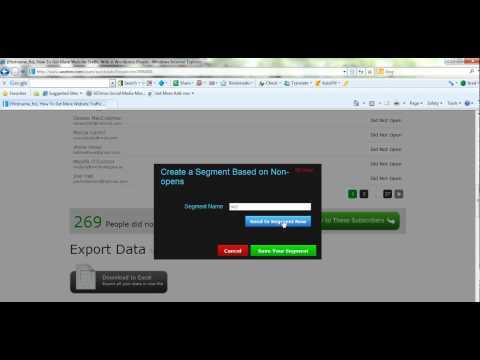
The key to this is to find a better hook. Ask yourself what it was that people found uninteresting, especially if they usually open your emails. Once you’ve done that, change the subject line into something that would convert better – maybe test the alternatives within a small group. This way, you can segment the targets into more specific and similar groups for a better open rate.
27. Try Automated Behavioral Triggered Emails to Exploit User Behavior
Each user behaves a certain way, and there’s no need for a psychology class to understand this fully. Consequently, the decision-making process may suffer alteration from one user to another. To you, this means that it may not be effective to send users emails only triggered by the time of the day or the day of the week, but also by their behavior on your website.
For e-commerce platforms, this could be an easy choice. It’s never wise to leave un-emailed a user who abandons a chart with items in it. However, there are more nuanced emails that you could send as well, on different other occasions, like Abigail Waterer advises in this article.
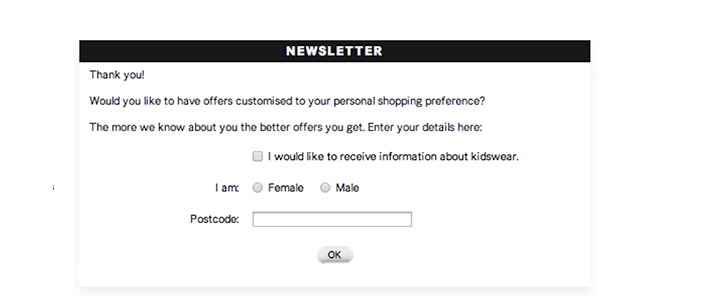
If you’re still wondering why automated behavioral triggered emails is a good strategy, even though the email is automated and it may lose a little from the personal voice (although I think it doesn’t have to), let me explain. It’s because you’re sending it at the moment of utmost relevance to your prospect. Formulated properly, this strategy can increase email open rates with 71% and the CTR with over 100%. And there are lots of marketing statistics out there, that can prove this strategy.
28. Ask Your Contacts to Decide How Often They Want to See Mails from You
Yes, it’s still relevant to do it. Our needs aren’t something absolute anymore. We’re past the time when we either needed that or we didn’t. Today, you might need a service or a tool in different degrees, to different extents and clearly for distinct purposes. Depending on these variables, there’s always the possibility that you have the right solution for your prospects’ needs, but you either deliver it in a nagging manner: way too often, way too heavily or worse – too scarcely.
A survey by TechnologyAdvice shows how could businesses improve their email efforts.
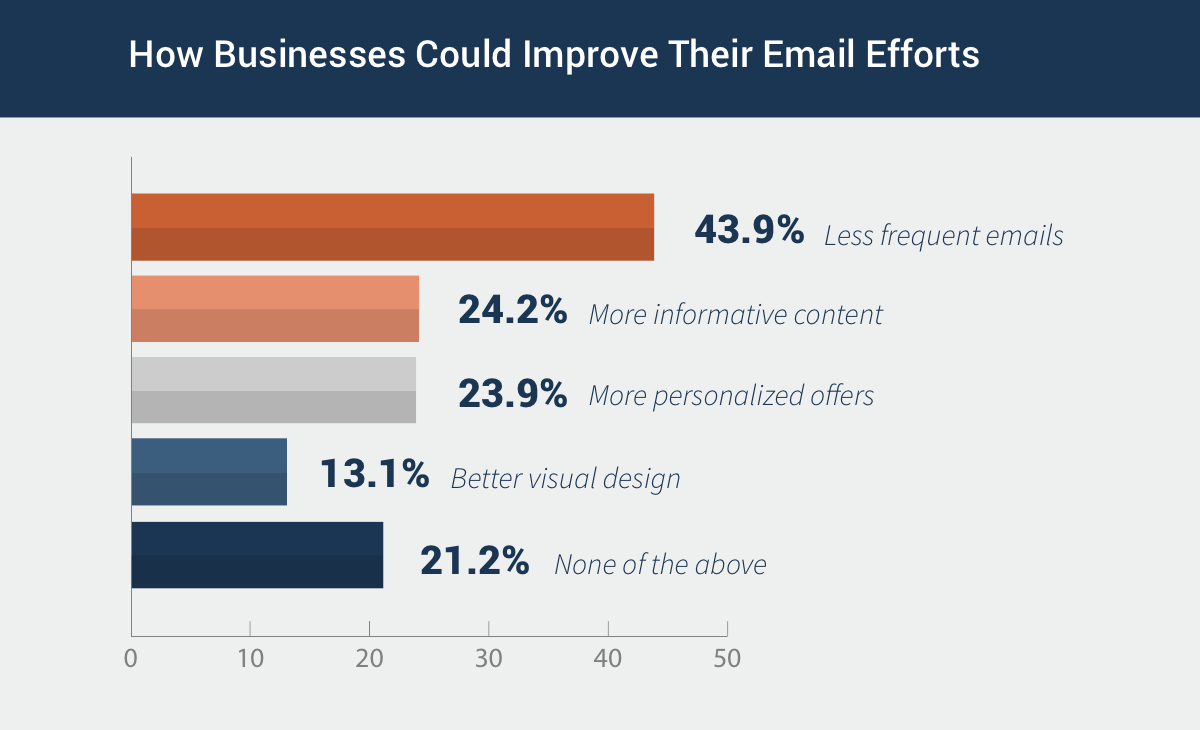
Of course, you can run tests. It’s preferable that you do. But users appreciate honesty. Put yourself out there and ask them to what degree they need to hear from you. If it’s once a month, don’t worry. If you’re awesome enough you’ll increase the degree to which they need you.
However, if it’s daily, don’t think you’ve got the user wrapped around your fingers. Leads don’t work like this, you have to work constantly for them. The more a user needs to hear from you, the more they’re exposed to your content and may notice mistakes. There never is an easy way, but honesty is the first step to building meaningful relationships with your target.
29. Create Anticipation towards the Following Email from a Series
We’ve already talked about the fear of missing out (FOMO), which often comes in the way of loss aversion. That’s why, besides having an open loop, it’s often very efficient to create a sense of urgency for your readers to understand that they might be missing on some valuable marketing tips of an email saga.
According to many sources, anticipation doesn’t have to mean rewriting “The Young and the Restless”, as it’s enough to just send one automated pre-launch email sometimes.
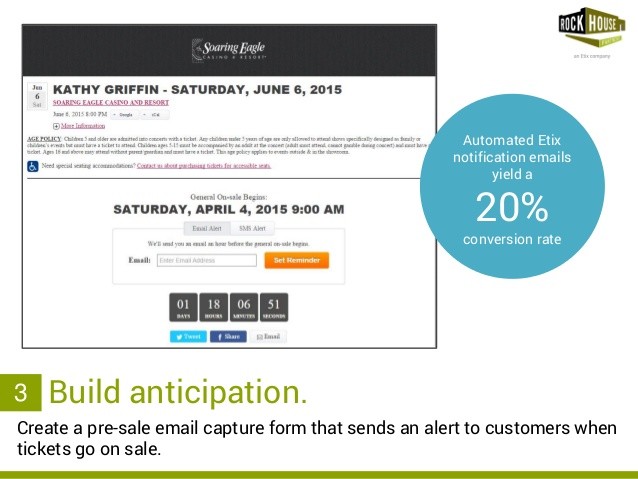
There’s nothing wrong with applying some social pressure on your readers, as long as you don’t exaggerate with the drama.
As long as you’re consistent in delivering quality information, this can be a very effective way of creating a powerful fanbase. When the readers are under the impression that they might be missing on some amazing tip, their willingness to read will be significantly higher.
30. Let the Contact Know Your Email Is Fresh
A constant feeling that we all have is that time passes by and we don’t get enough of the important information because of all the biased feed algorithms on social media, and because of even-more-biased interests. That’s why, besides being relevant, information has to be fresh to be of importance. There’s nothing that screams ‘open me’ more than a well-written, fresh newsletter that will drive traffic.
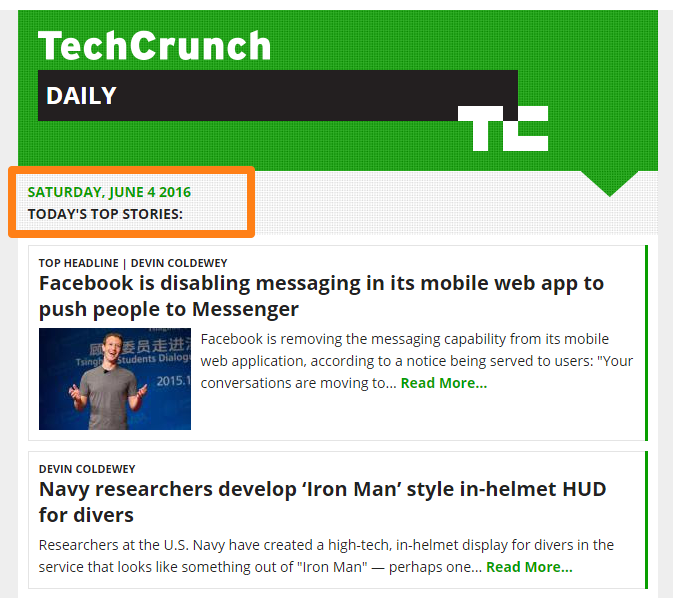
When you decide to include time coordinates in your emails, you will have the guarantee that people are going to know how urgent it is to read it. If it’s Monday morning and you’re sending a fresh update, chances are it won’t get open, as everything is new on Mondays on everyone’s schedules. But if you do have something important to say on a Saturday afternoon, maybe it’s worth taking a look at.
IV. AVOID SPAM FILTERS
31. Beware of the Word ‘Free’. It Can Trigger Spam Filters
And not just this word. There are plenty of overused spam words that can trigger filters out there. The more you’re avoiding them, the more you have a chance to get to your leads’ inbox. Whenever you’re feeling undecided about the spam appropriateness of your emails (especially when it comes to the subject lines), consult one of the lists out there and avoid the words that could contribute to your small open rates at all costs.
Andrei Rebrov gave lots of negative examples.
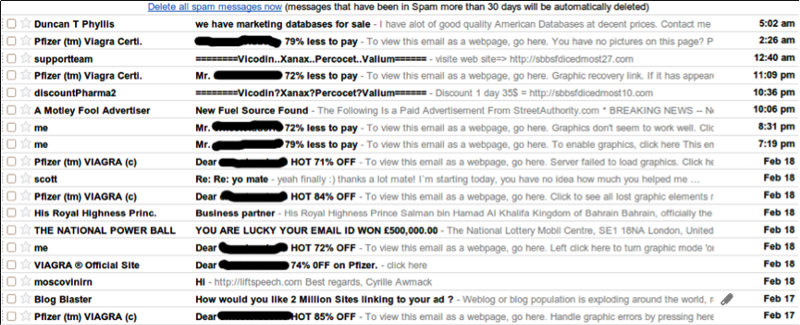
32. Use Lower Case Letters in the Subject Line
We don’t live in a webiverse where you have to shout anymore. Every niche that develops its work in the digital marketing area has reached enough maturity to mimic a conversation appropriately. Shiny fonts have stopped working as well as any other bling-bling that would have granted your success in the 2000’s.
There’s a more explicative way of putting this as well. Your readers don’t find themselves on your page because they’re looking for wondrous solutions to never-ending problems. If you’re looking to develop a sustainable business, you’ve got to stop trying to deliver magic. Instead, a clarifying explanation, a step-by-step guide or any other explanatory process does the trick. The more honest you are, the more credible you are. And this means leaving out the tabloid view of your articles.
Sometimes you don’t have to be spammy to sound spammy to filter algorithms. Check the example below:
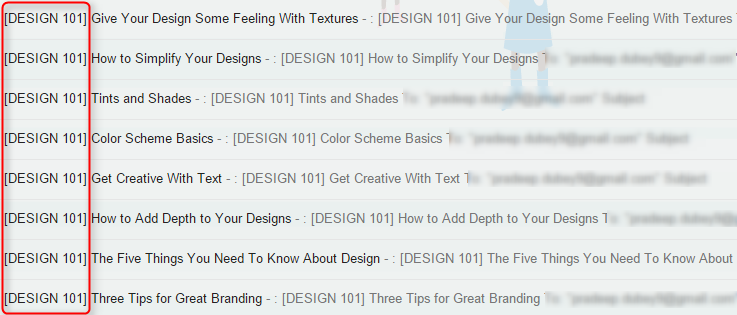
As for the subject line, it’s not just the search engines that have developed spam filters, or the email providers. It’s the users as well. Whenever your readers will see something that’s exaggerated and artificially pumped, they’ll choose to ignore it thinking it is spam.
When friends email you, they don’t use upper case letters, unless they’re mocking the idea behind them. If we are to build a strategic relationship with our readers, we’ll have to treat them in a personal way, and this comes with assuming a balanced role in delivering information.
33. Only Use the Emails of Your Contacts for What They Expect from You
If your last years’ efforts have been all about building an audience that can find you reliable, it wouldn’t be fair to your audience and neither would it be a good strategic step to sell your contacts for other businesses, especially if they’re not connected to your area of expertise, therefore to their areas of interests.
Take iPad’s example.
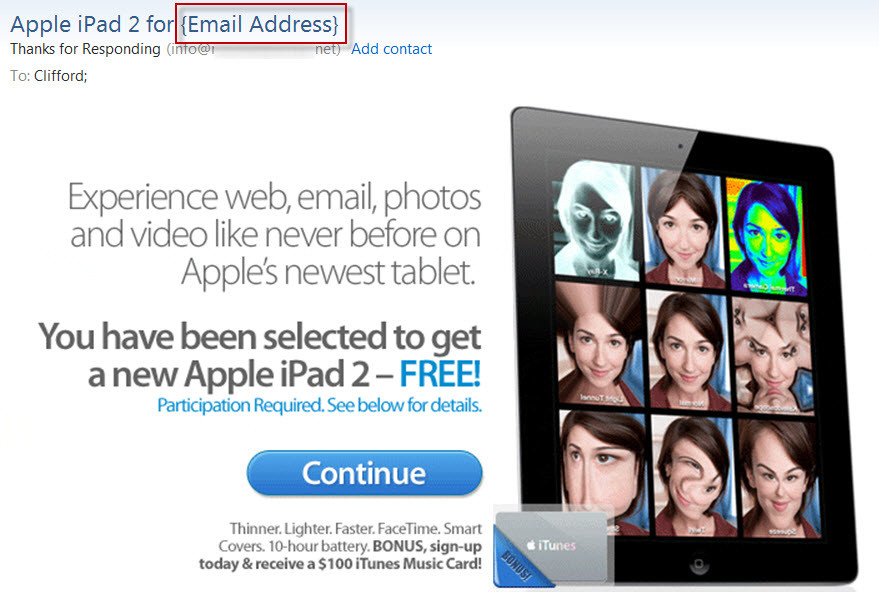
They sold the database to one of their competitors.
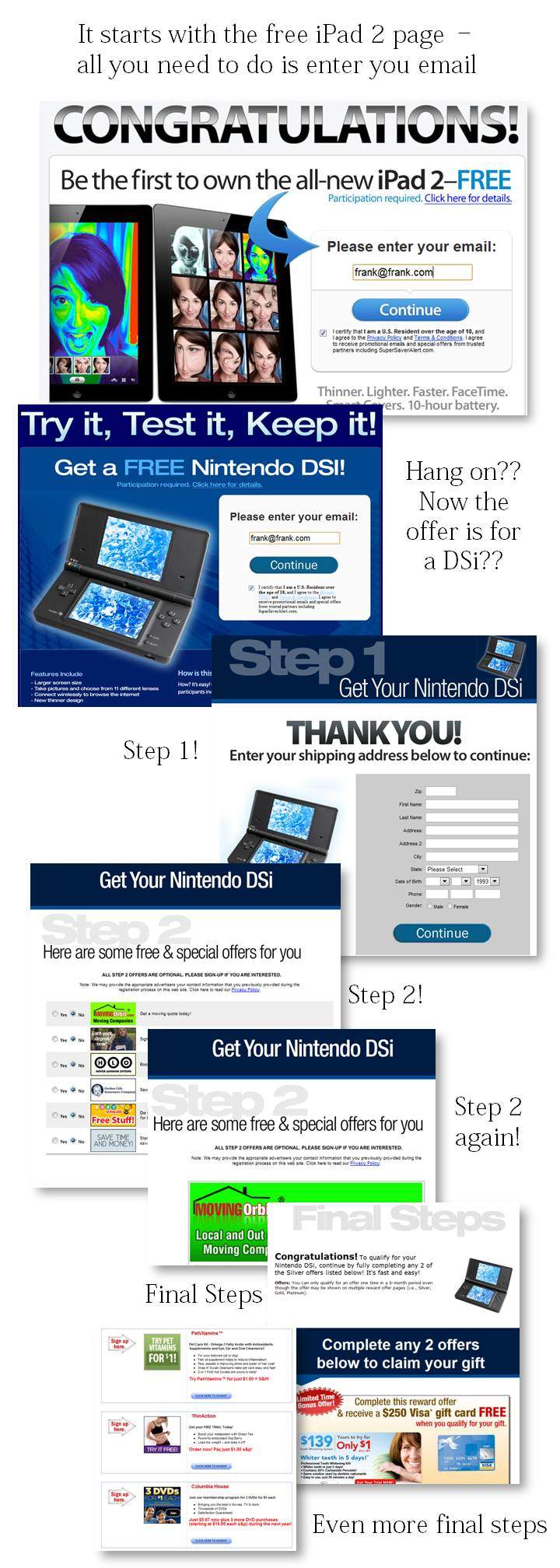
34. Make the List Double Opt-In
If you don’t want to end up in the spam folders create double opt-in lists for your prospects. Having thousands of thousands of subscribers is amazing. But not when it comes with a 0.01% open rate and 0% conversion rate. Then it’s awful and you’re doing something wrong.
The double opt-in has such a powerful fan base because it works. There’s nothing wrong with having less leads, as long as they’re more interested and their reading/purchasing intent is dramatically higher. To be relevant means to be specific, and it cannot be achieved if you’re running for leads aimlessly.
Good copy will always be appealing, but you have to make sure that your interests and your future readers’ correspond.
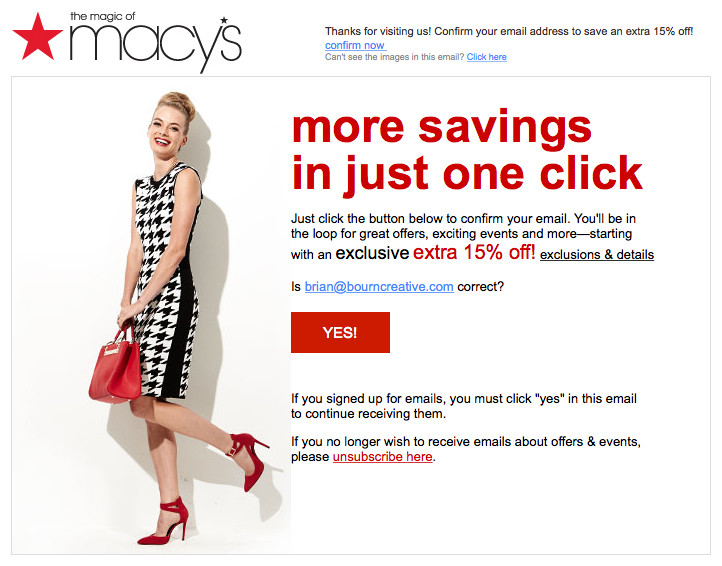
As much as you want to know that your emails are sent to a number of people as big as the population of Japan, ask yourself to how many of them it is relevant. Because people talk. Your leads, to whom you’re sending useless emails, may have friends who would really consider you as a viable option before hearing them complain about how aggressive you are.
35. Ask Contacts to Add You to the Address Book
It is true that spam filters are to be considered even when you’re delivering great content that anyone should be honored to receive. Being in someone’s address book, however, does more than protect you from spam filters and improve deliverability rates. It makes a statement about the personal level of your relationship, not necessarily in terms of closeness or intimacy, but concerning the extent to which you’re satisfying a need they have. Or add a link to make it obvious, just like it is presented in the next example.
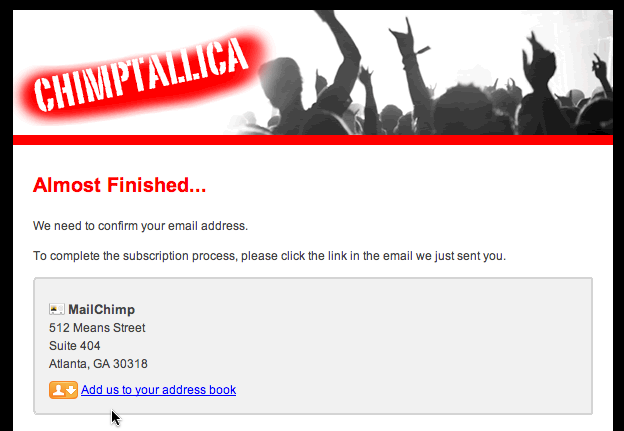
36. Avoid Attachments, Whenever Possible
First of all, because they’re rarely opened. From a marketer’s perspective, it should be more than clear that attachments are a no-no. If there’s something truly relevant in your email, the user will get it. If your click-through rate is too low, maybe there’s room for improvement. However, being pushy about it is not a solution.
Using attachments makes spam filters instantly think you’re onto scams.
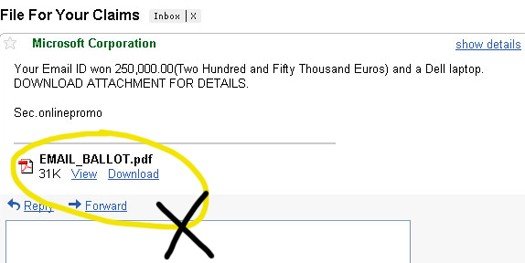
Instead, try making the content irresistible. Create cravings for your readers and you’ll get yourself a better open rate. It’s enough to mess things up once with an attachment or a poorly written email, and you’ll hardly ever get to be read again by that lead.
37. Optimize Your HTML to Increase Deliverability
Over 70% of the readers use mobile devices to open their emails. A badly optimized HTML not only will diminish your chances of landing to their inbox, but the users will avoid opening your emails in the future if the HTML isn’t responsive. A bad user experience is what you should be very afraid of. You don’t want to be that guy. So try your best and test your newsletter to see if it’s responsive to please all mobile users.
Take Inc Newsletter, for example.
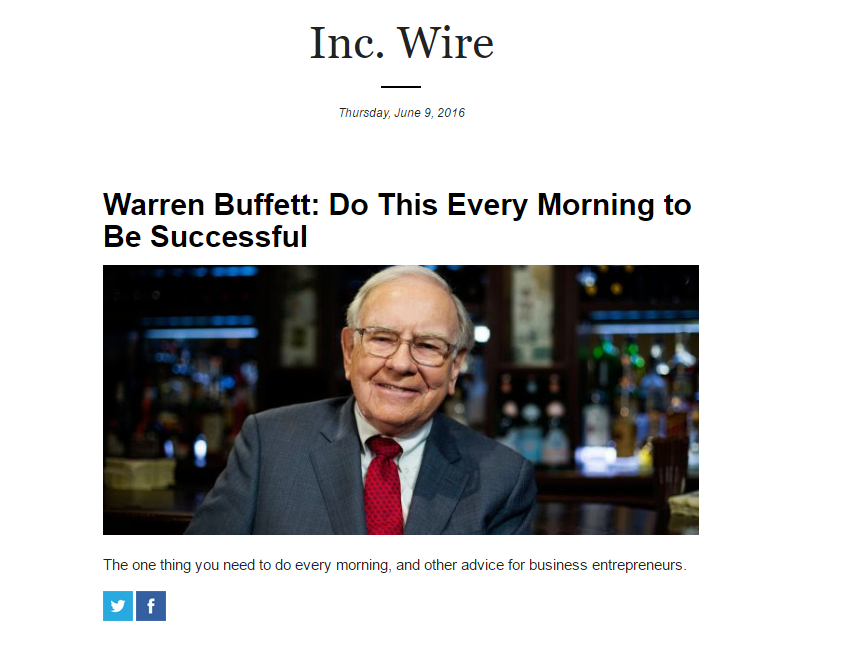
While the design isn’t at all sophisticated, it’s always informative and easy to skim. Aside from this, it’s also practical.
38. Use Well Optimized Videos to Get the Message in Your Prospect’s Inbox
Same goes for your videos. While it’s encouraged to appeal to more than the reading function of your audience’s cognition, it’s also strongly advised to make sure that the strategies you’re using to improve email open rates work properly, otherwise the entire extra effort is in vain.
Video email marketing is a thing, but only as long as you get the technical part straight.
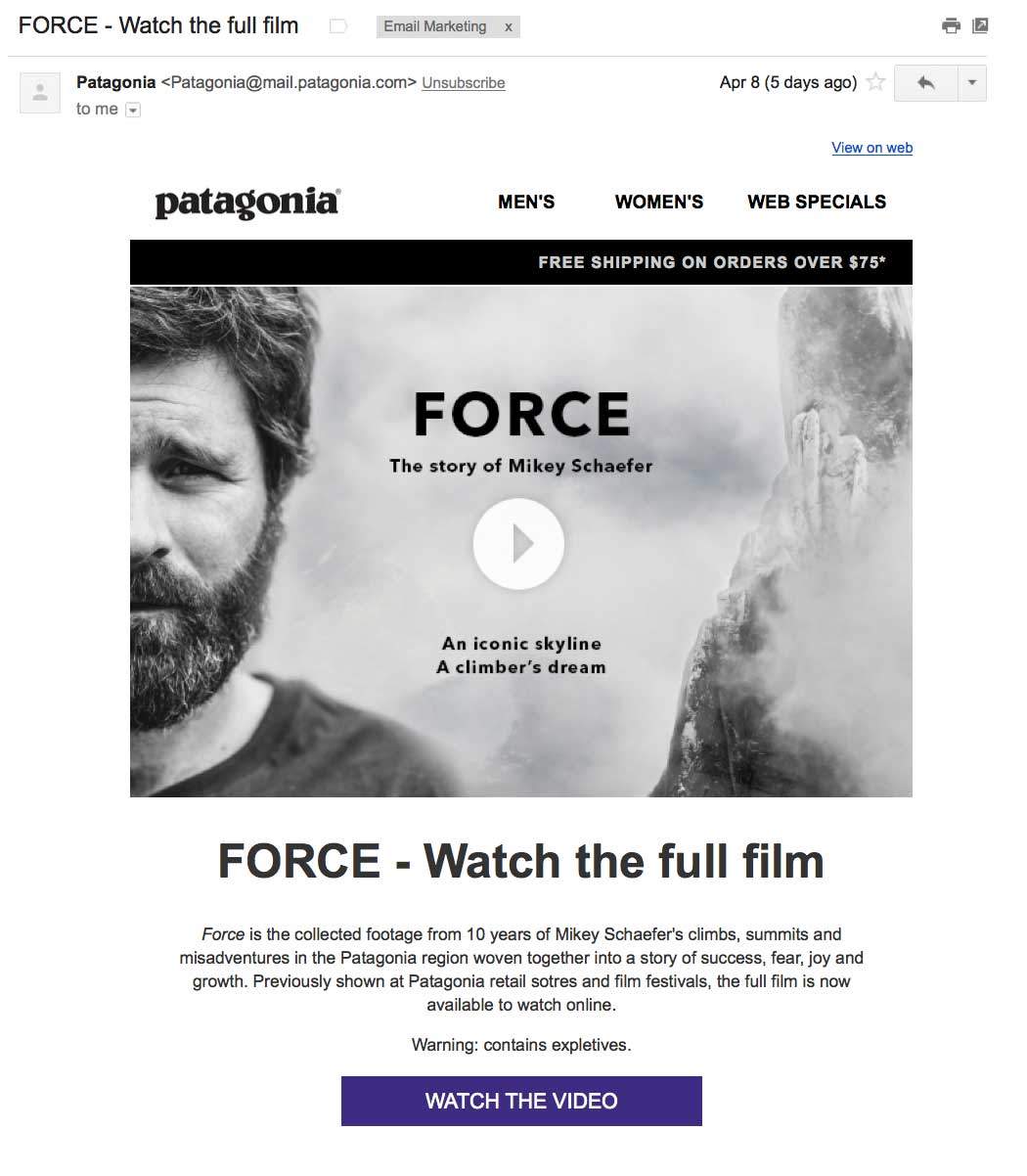
The rest of the story is similar to an un-optimized HTML code – it’s enough to have a bad experience once to unsubscribe or never react to your emails again. Not to mention the off chance of not getting to your prospects’ inbox because of technical errors that may come along with your videos.
39. Optimize Images to Be Responsive on Mobile Devices
Besides improving the template of your email design, images will have to be responsive too. A lot of our understanding comes from a concise image when we start skimming through content. Not because images are better than a thousand words, but because your prospect will know from your image if they’re interested in going through all your content. If this leverage they’re judging content based on doesn’t work, your email risks to never be opened again.
Andrew King gives the example of Domino’s, who listened to the voice of users’ needs and started to take into consideration the device where they check their emails.
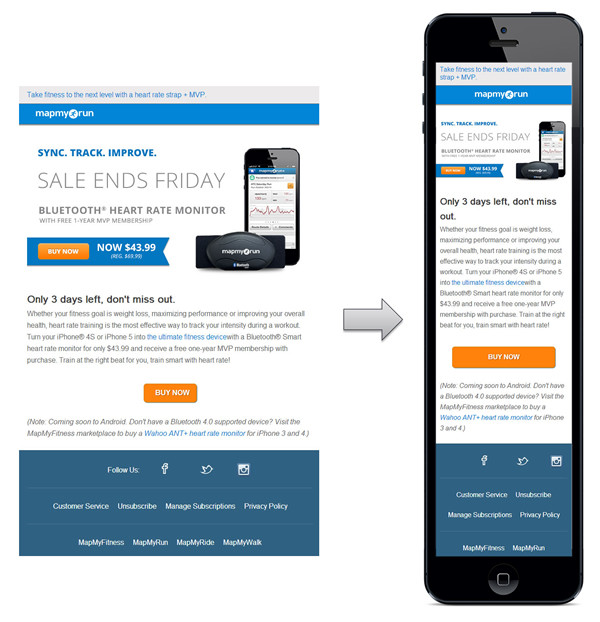
40. Use Email Authentication to Prevent Fake Accounts from Sending Emails in Your Name
This is a milestone for business owners, and doesn’t only apply for the email campaigns, but for your personal branding strategy as well. It’s essential to have authentication in order to minimize the chances of a dirty competitor’s fake account sending emails in your name. It is true that, in the business world, one mistake can cost you everything you’ve been working for.
Plus, this is another great way to improve the rate of emails actually landing in your users’ inbox. The authentication can also be required to users in order to read the emails you’re sending, which is another security leverage that you can use to improve open rates and the overall success of your email marketing campaigns.
It’s harder to maximize the open rates on the long run without proper authentication security.
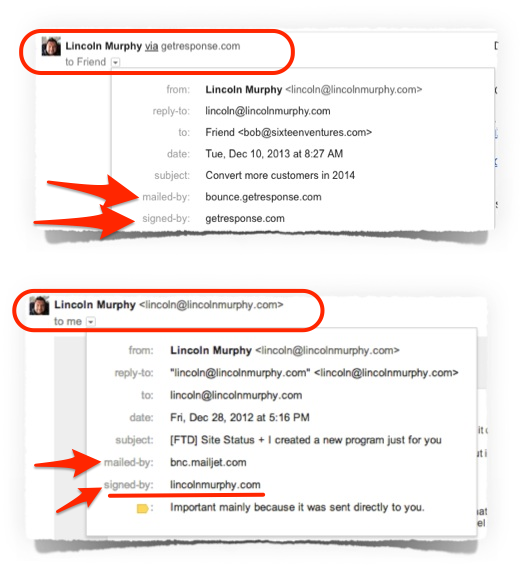
41. Connect Your Current Location to the Email Account to Spot Unusual Activity Easier
This one’s a complementary step that adds up to the entire effort you’re putting into being relevant and reliable. Your current location is one of the means of being kept from any account counterfeiting attempts. Plus, in case you’re active on Twitter, your prospects will better keep in touch with your day-to-day activity, the conferences you go to and the ways they can reach you better.
Or use it to pitch your next business growth idea.
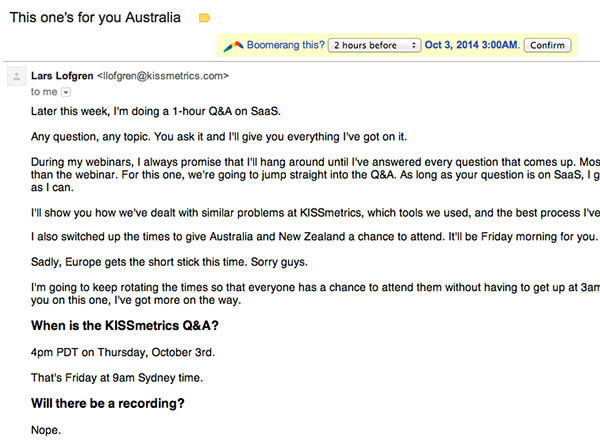
V.BE AWARE OF THE LIST SEGMENTATION IMPORTANCE
42. Micro-Segment Your Mailing List
When it comes to segmentation, it’s essential to approach the right target audience and, in order to do this, you have to know what the personas’ informational needs are. Open rates are closely related to how relevant the content of an email is to the contact.
Micro-segmenting is crucial, as it helps you maintain pertinence to the content and deliver germaneness depending on your contact’s personas and the needs you’re striving to satisfy.
Behavioral data aims more specifically than demographic data. The psychology behind why people buy your products, whether the users are using a paid or a free subscription, how often they open the emails, whether they use desktop or mobile more and the click-through rate are often more relevant than just the gender and job title of the user. However, these two go hand in hand whenever you’re trying to build a comprehensive buyer persona.
For instance, Douglas Burdett wrote about the benefits of list segmentation after a survey taken by Lyris.inc, and the results were not too shabby.
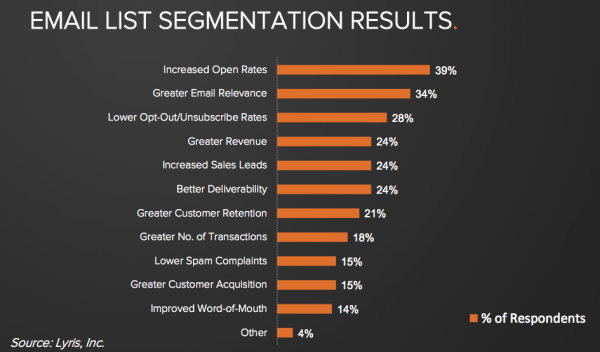
A minimum information about a client should be divided into:
- background – the psycho-graphic characteristics;
- demographic information: job title, gender, professional interests;
- interests: what kind of information the clients consume regularly and what they are interested in satisfying;
- engagement data: tailoring the message and its delivery to the consumer’s habits of engaging with this type of contact, in order to increase the open rate.
43. Address Prospects from Your Niche
Once you’ve established what the prospected personas look like to the finest detail, it’s time you carved your message in order to respond to a series of questions before they even get to ask.
People in your niche are not predictable, it’s not what we’re going to argue. Instead, we strongly believe that the odds of you delivering relevant content are higher within your niche of expertise. If we’ve all agreed that generic messages are a key issues in e-commerce email marketing, then addressing specific prospects that are active in your niche is the logical step to follow next.
The more specific your area of expertise, the more selective you should be in addressing prospects and avoiding mistakes such as the one below, with a very broad topic and an overly hyped subject line.
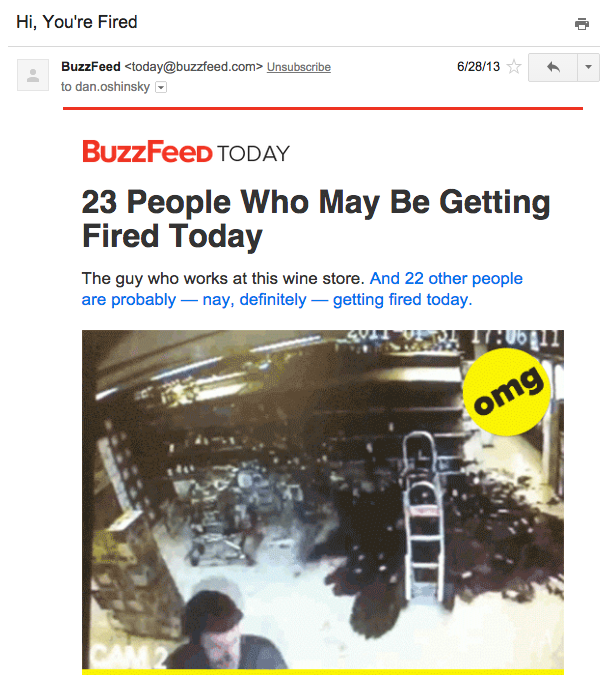
For the people who are part of your industry, the message should be somewhat broader and more contextualized compared to the emails sent to people who already are highly knowledgeable. The way you address prospects and you position your company against their interest has a huge impact on their attitude towards your services. It takes addressing people as specific inside the niche as possible and different content approaches to have long-term positive impact on your open rates.
According to Yaro Starak’s blog post, you have to start small and humble, by addressing people who are most interested in hearing from you.Whenever your prospect will believe that your message is too generic or, on the contrary, too specific for their understanding and/or interests, you will lose any privilege of being read.
44. Constantly Upgrade & Update Your Contact List
There are all kinds of creative ways of managing inactive subscribers. There’s always a reason behind their lack of activity. However, depending on whether they used to be engaged or not, the approaches can be different.
A user who’s been opening emails for years without hesitation and who all of a sudden doesn’t seem interested in what you have to offer will most likely have one reason of ignoring your emails in spite of all efforts. Additionally, someone who has never opened even one email is so uninterested in your company that hasn’t even bothered to unsubscribe. Following on this idea, be grateful to people who have remained loyal in time. You should try to sholve the issues when you’re seeing a soft bounce, not to mention a hard bounce.
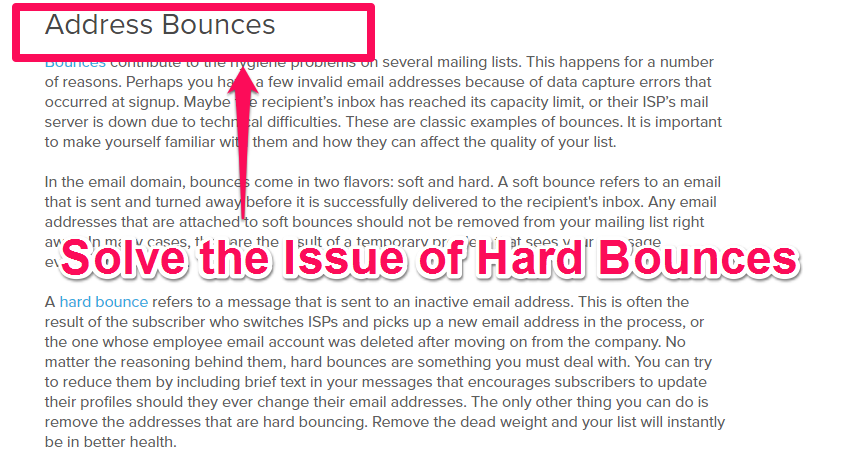
As this blog post from Benchmark Email puts it, a hard bounce is the number of emails that never get opened or delivered, for that matter, because of the invalid email addresses. This variable can damage your overall performance in case you don’t go through a regular contact list detox, and your email marketing efforts may just seem pointless after a point, even if you’re doing everything right.
There are different ways of dealing with the above-mentioned types of uninterested subscribers. The first can be asked what happened and friendly required to give feedback. After all, they’ve been so close to your business for all this time, that their input should be valuable. As for the other category, they most likely need to be sent an email and asked whether they would like to be subscribed to your emails or not. Honesty is something even unattached people appreciate.
45. Address the Message Having Just One Persona in Mind
When you’ve identified the persona you’re writing to, the first question to be asked is if it can’t be classified into two more specific personas. The more definite your idea of the prospect is, the more clear-cut and tailored will be the message – which is ultimately what it takes to increase open rates.
Dropbox makes a great example of a personal approach that speaks to the human behind the businessman.
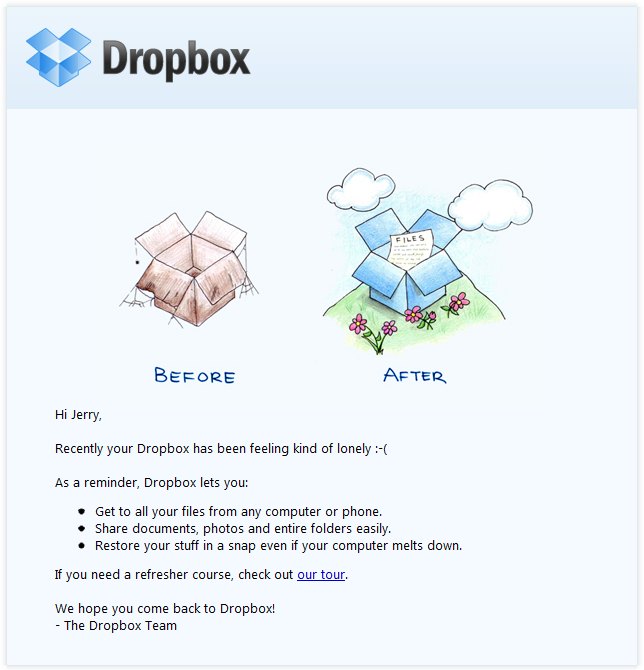
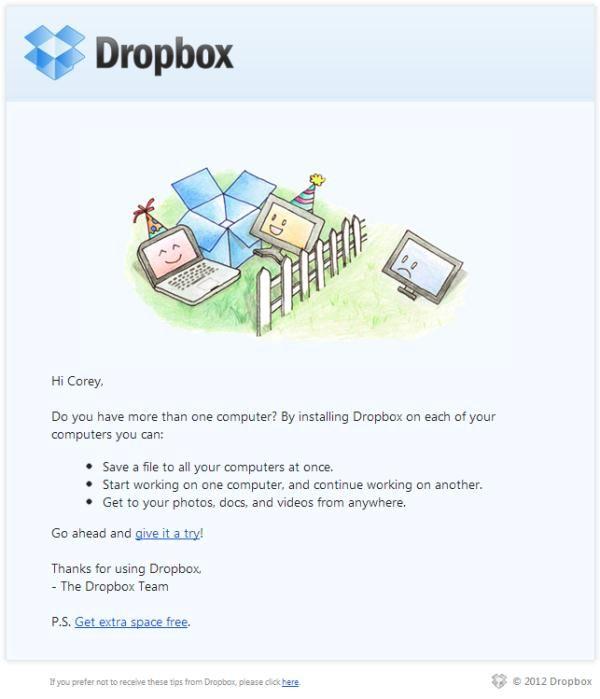
They seem to be always a little more creative, while keeping the same line of thought.
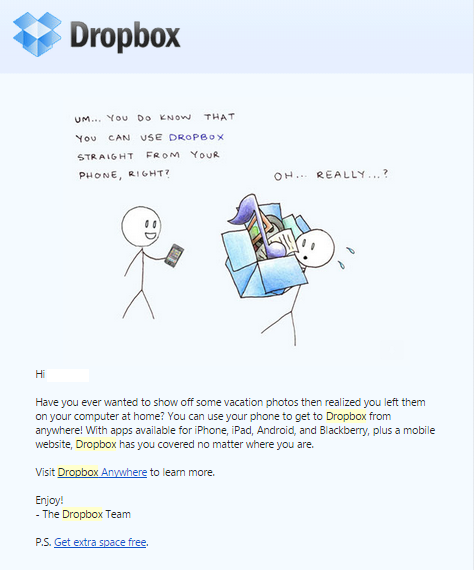
Understanding the audience’s core problems and interests is the very core from which both the subject line and the message content should be crafted. The fact that it’s easier to write more generic emails doesn’t justify the effort of building a solid contact list, as most of the people will think the content is spam. Writing like a friend, from an honest first-person point of view can save the day, especially if you’re positioning yourself as being a reliable source.
46. Avoid Sending Unsolicited Emails to Recipients
If the prospects didn’t subscribe to receive emails from your part regularly, it’s more than appreciated if you can keep up to the promise and deliver consistent, friendly content on a weekly or daily basis. However, subscribing to your newsletters doesn’t imply the prospects are automatically interested in all the promotions and offers that you’re about to suffocate them with – so take a step back.
People hate being the subject of spam. And it’s only fair, as you risk losing fractions of your target audience that would have otherwise continued reading your content.

Avoiding such mistakes is one of the best steps you could make as to maintain relevance. We’ve become so used to avoiding promotional messages, that we’re prone to avoid a source altogether than expose ourselves to a sales department.
From massively using AdBlock to changing the TV channel whenever there are commercial running, there’s nothing we wouldn’t do to protect ourselves from the flow of adverts. This being the case, it’s not far fetched to state that you have a better chance to convert a prospect by being honest and delivering exactly what you promised to.
VI. KEEP A STRONG CONNECTION WITH YOUR AUDIENCE
47. Add Social Media Links to Be Closer to Your Audience
It’s true. Your signature doesn’t have to be long and boring, but a little extra relevant information never hurt anyone. Especially since including social media buttons in your signature connects your brand with a human face, the one of a person who’s willing to reply to Twitter tags and Facebook comments.
Always make yourself available to your audience. It’s the honest way to win their hearts. Yes, it takes time, but assuming someone just finished reading your email and has a quick question, maybe they’ll feel better to ask it on Twitter than pressing reply to your email. Be flexible. Wisestamp’s business model is focused on delivering signatures for professionals who use their emails to engage with their clients and leads.
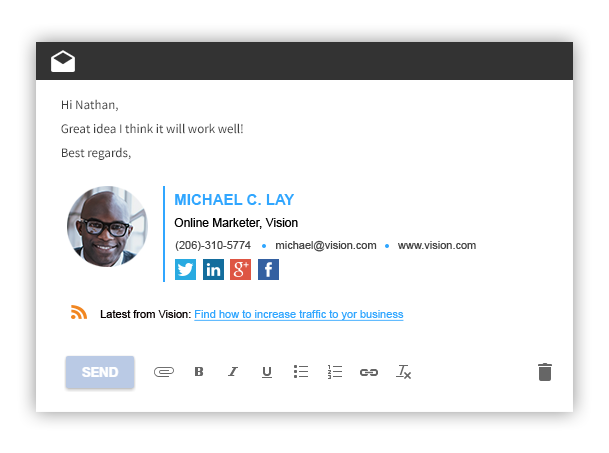
48. Send a Warm, Personal Welcome Email When Someone Subscribes
It’s great to use email automation sometimes. However, this behavioral trigger starts from the premise that you’re trying, form the first minutes, to build a personal relationship. This is why you put so much effort into sending a welcome mail. Consequently, it will have to be personal. The styles, however, can differ. Or you can throw in a design template. Just like in the example below:
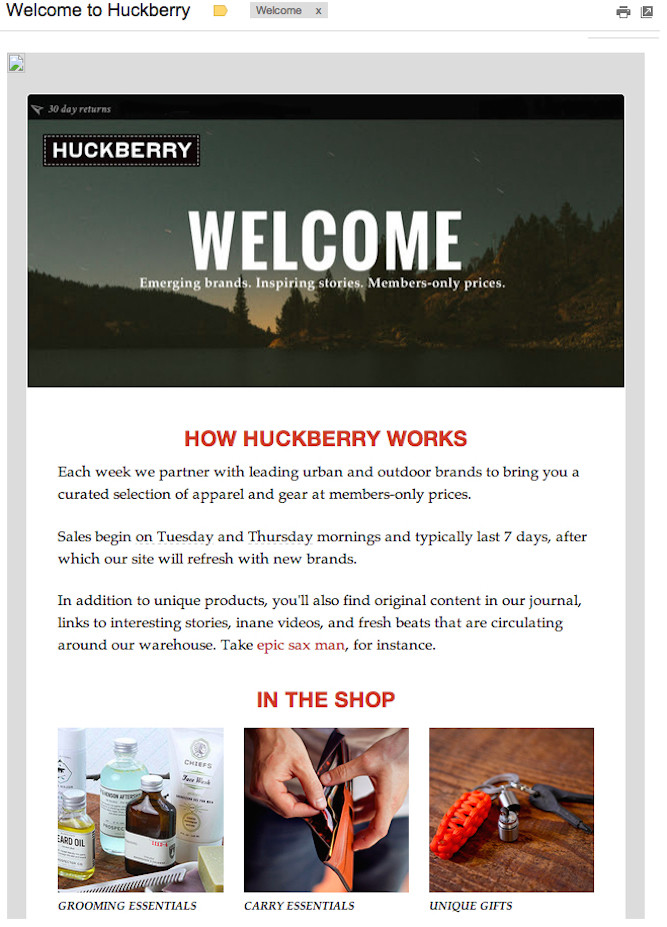
You’ll sign it with your name, you’ll mention why it’s so important to you that the person joined and thank them. Of course, you’ll also emphasize some of the reasons why you’re not dependable, without looking arrogant. Don’t make it about you, it’s their special day!
49. Send Relevant Product Update Emails
Another automated email that works in the best interest of your prospects is the product update one. Let me walk you through it. It’s an important day for you, as you released an update you’ve been working at for months, if not years. You’re happy to finally see it happen. You have to tell your audience, but only if you make it outstanding!

But be careful. This is not about you either. Your prospects will not be interested in hearing you yapping about how great you are. Remember you’re satisfying a need here. Remind them why this should be an important day for them as well, focus on the changes you’re making and how your contribution to their lives is now more significant than ever.
50. Use Your Credibility Smartly. Avoid Promotional Content
Of course, you should. There’s no point in trying to be a perfect solution for a striving need if you forget – even for a minute – the main reason why people read your content and buy your products. It’s because they need something. It’s always about this. So that’s your biggest leverage, the way their lives are changing. Your presence should be subtle and humble, not all over the place and vocal, it turns people off.
Distract your audience from you and your brand, and help them focus on the benefits exclusively. This attitude can get you far. Unlike a cheap attitude. After all the work you’ve put into gathering a contact list, it would be detrimental to ruin it all with a single email, such as this one.
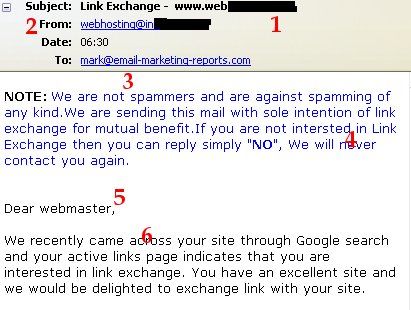
51. Include an Unsubscribe Button
It doesn’t have to be in their face, it’s enough to include it in the footer of your emails. People who cannot see this will most likely mark you as spam, which is the worse thing that a marketer should ever think of.
Plus, it builds to your credibility. If you’re open to the readers, transparent and correct, they’re more likely to trust you and not think that you’re tricking them in any way. Not to mention the possibility to pay fines if the country you’re in makes it illegal not to have an unsubscribe button.
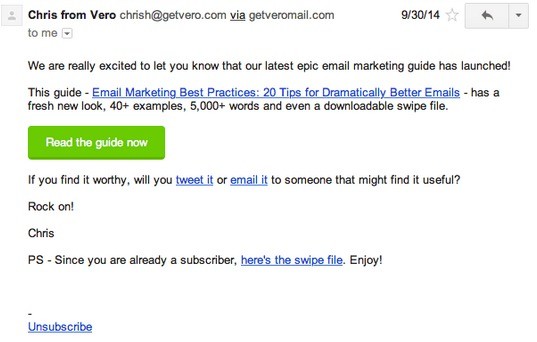
52. Personalize Your Signature with a Short Description
Underlining short. You don’t have to reenact Anna Karenina in your signature bio, but some compass of what you’ve done and who you are to your readers should work just fine.
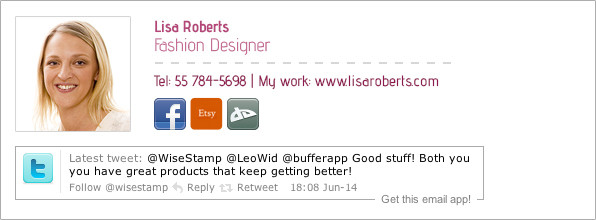
It’s important to show your readers who you should be to them and how they should position you in their lives. Are you the guy who developed the product? Or are you also fun and do bungee jumping in your free time? Maybe it’s time for your prospects to see you as more human, and relate to who you are personally!
53. Encourage Sharing the Content of Your Email with Close Friends
Extending a deal towards an engaged prospect’s network is sometimes even CTA worthy, however much of an overly optimistic madness this may sound like. The psychological explanation is basic. When you’re dealing with people engaged towards the brand, it’s not unheard of to recommend them to share content among close friends or professional acquaintances. This is a highly targeted move, and it its chances of success aren’t farfetched.
There are lots of marketing specialists advocating for replacing the CTA with a ‘share with a friend’ message, and more and more professionals are applying this tip.
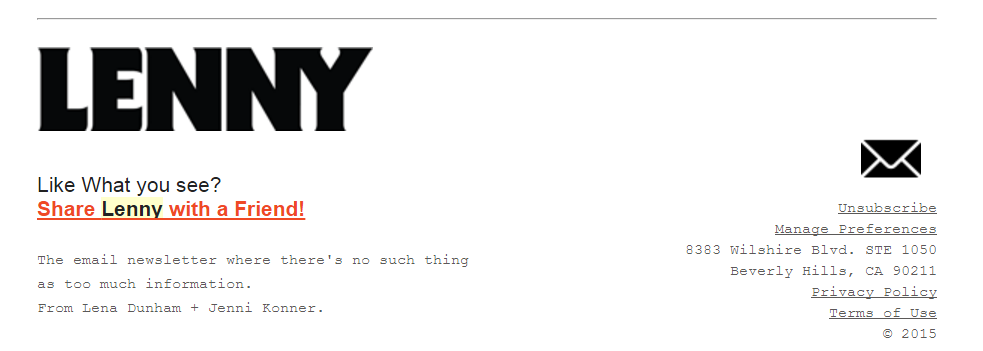
Once the prospect has engaged with your content, it means they agree with the main premise of your discourse – that your value is newsworthy or read-worthy. The only thing you’re left to convince them about is that you’re also share-with-someone-in-the-niche worthy. Without following any stereotypes from known idioms such as birds of a feather, the real chances of any prospect of yours to know at least one or two people also potentially interested in what you’ve got to offer are quite high.
From exclusive information that was part of the newsletter to offer coupons for tool discounts, everything that is valuable is worth sharing with your close friends.
Conclusion
Spot a trend in the email marketing ecosystem. Follow all the marketing tips and strategies we’ve talked about to improve your open rates. See what a template looks like or what makes you wonder if you’re getting a template or a personal email. Do the exact opposite of that. It usually helps to stir things up a little with a personal detail that an automated tool would never be able to catch. It’s always about giving a little bit more than what the prospect is expecting to see.
The post 53 Untapped Ways to Improve Your Email Open Rates appeared first on SEO Blog | cognitiveSEO Blog on SEO Tactics & Strategies.
SEO Blog | cognitiveSEO Blog on SEO Tactics & Strategies

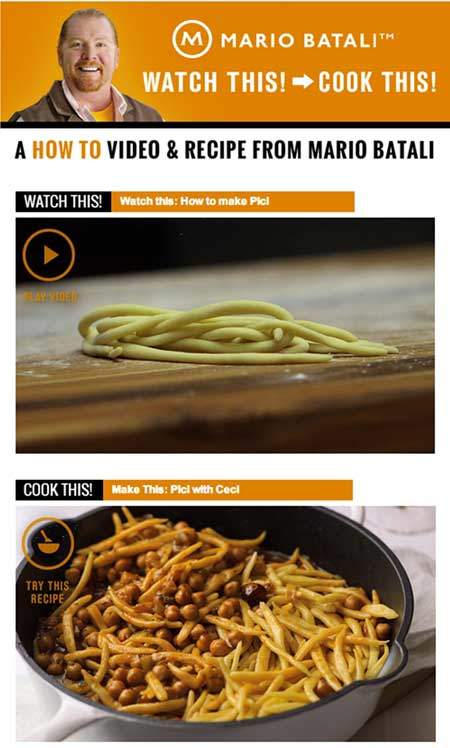
ReplyDeleteկարող են օգտագործվել վիրուսով վարակված մարդկանց բուժման համար։ Մեդիկագոյի գիտնականները համագործակցում են Գարի Կոբինգերի հետ, ով մասնակցել է Էբոլայի դեմ պատվաստանյութի սինթեզի
Vache Amaryan
Gor Yepremyan
Roza Filberg
Hripsime Hakobyan
գործընթացին։ Կարելի է ասել, որ պանդեմիկ վիրուսների պատվաստանյութի մշակումը Մեդիկագոյի համար նորույթ չէ։ Դեռևս 2009 թվականին ընկերությանը հաջողվեց H1N1 վիրուսի հետազոտական
ReplyDeleteArame
Hayko
Saro Tovmasyan
Lilit Hovhannisyan
Razmik Amyan
Arman Hovhannisyan
պատվաստանյութի թեկնածու սինթեզել ընդամենը 19 օրվա ընթացքում։ Երեք տարի անց Մեդիկագոն մեկ ամսում արտադրեց պատվաստանյութի 10 միլիոն չափաբաժին։ 2015 թվականին ընկերությունն
ReplyDeleteIveta Mukuchyan
Martin Mkrtchyan
serj tankian
Aram Asatryan
Silva Hakobyan
ապացուցեց, որ կարող է Էբոլայի դեմ հակամարմին սինթեզել՝ Աֆրիկայում մոլեգնող համաճարակին արձագանքելու նպատակով։Մեդիկագոյի կորոնավիրուսի պատվաստանյութը ներկայումս հետազոտվում է
ReplyDeleteARMENchik
Harout Pamboukjian
Sirusho
Shirazi Vard
Shirazi Varde
Shirazi Vardy
super sako